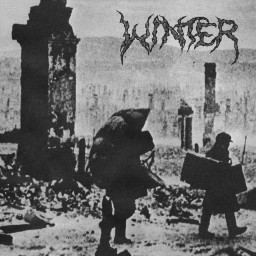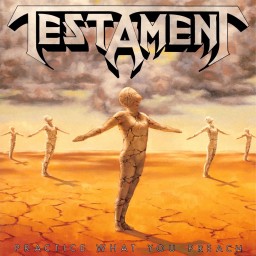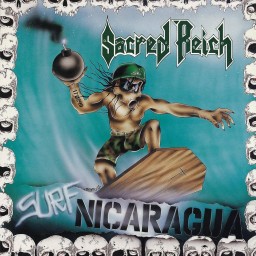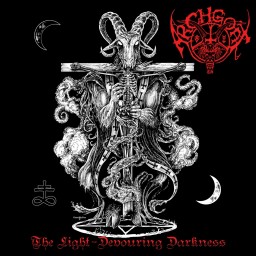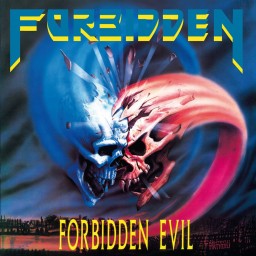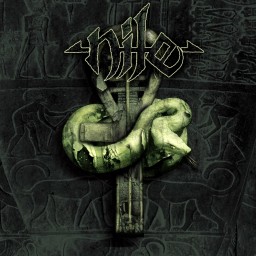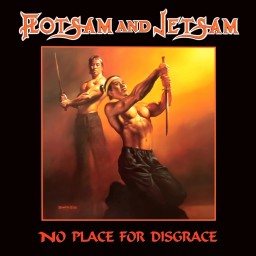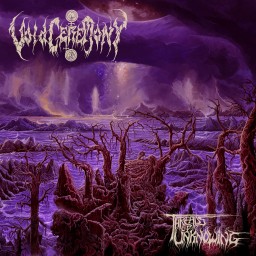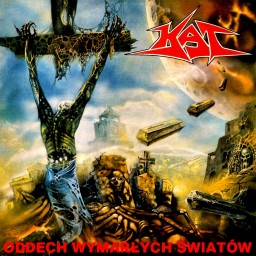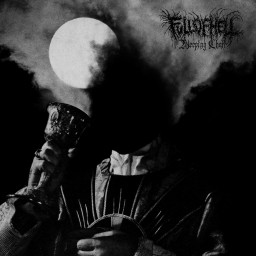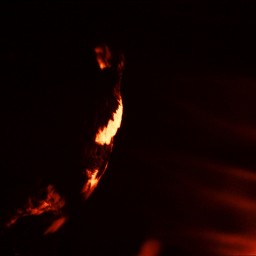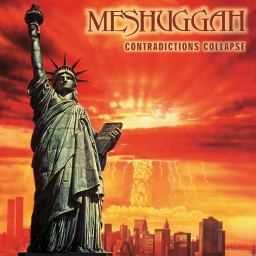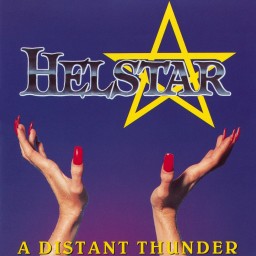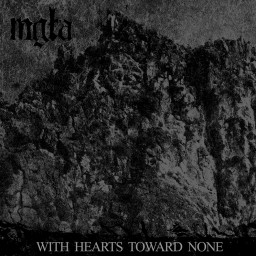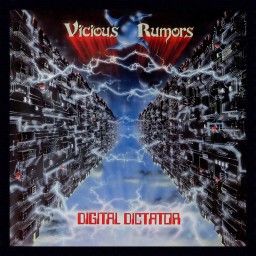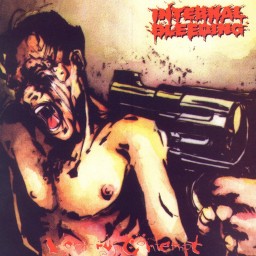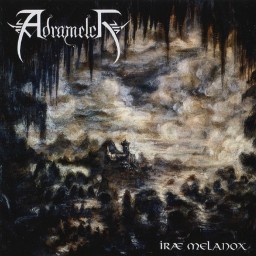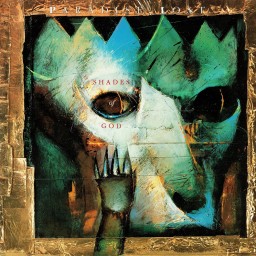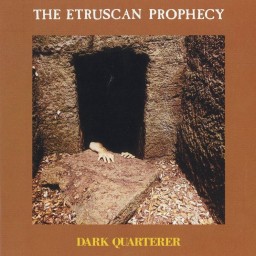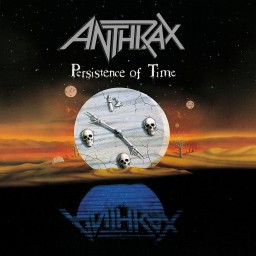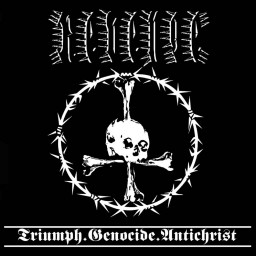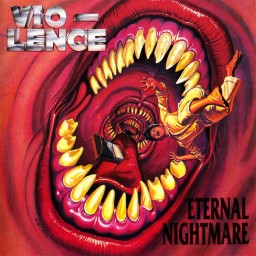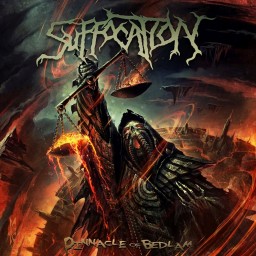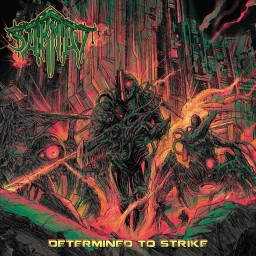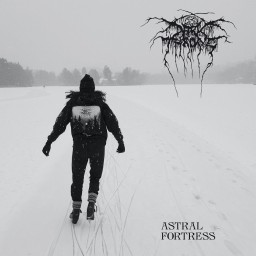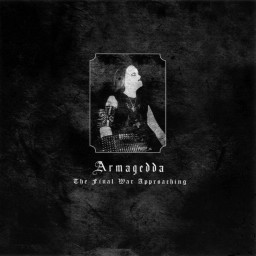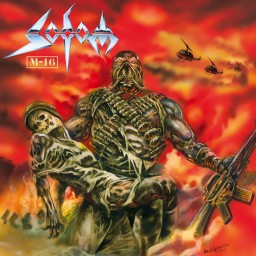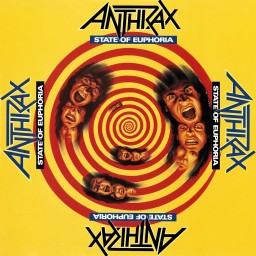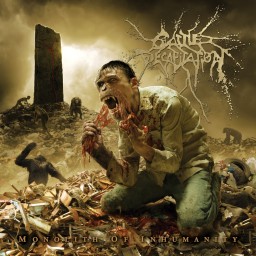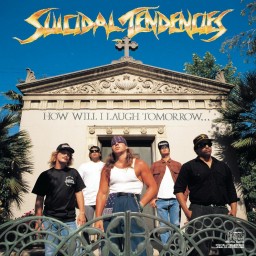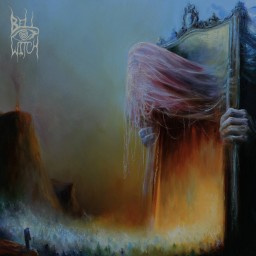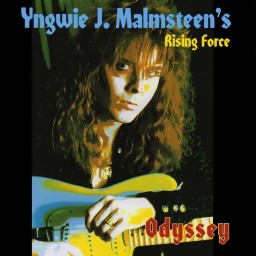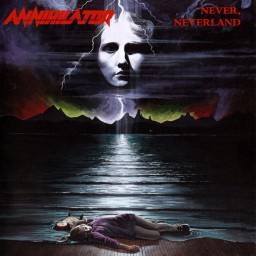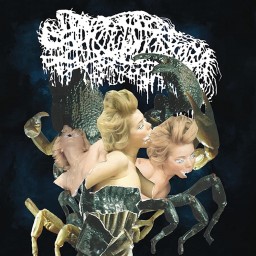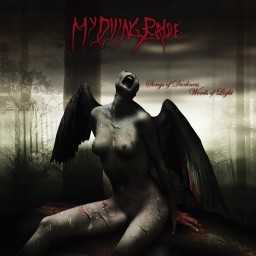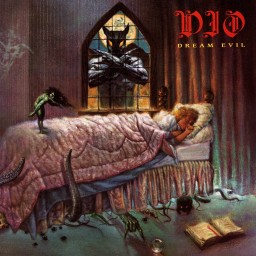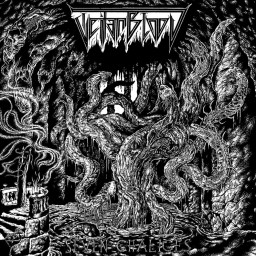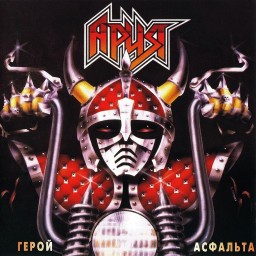Daniel's Reviews
New York’s Winter represent one of the Holy Grail bands in the underground metal scene in that they seemed to come out of nowhere with an imposing sound that would prove to be as influential as it was confronting before disappearing in a puff of smoke as suddenly as they appeared, never to be heard of again. I was lucky enough to discover them way back in the early 1990’s when I borrowed a cassette version of their sole full-length “Into Darkness” from a younger mate (who in hindsight had no real business owning such a release) & found it to sound like nothing I’d ever heard before. It was slower & darker than anything Winter's doom & death metal competition had ever dreamt of creating but it also possessed a much more suffocatingly oppressive atmosphere which really appealed to me although I wasn’t quite sure as to why just yet. One thing I was sure of though was that the genre tags that "Into Darkness" was being labelled with didn't seem to me to be entirely accurate as it simply didn’t sound like any of the other early doom/death releases I’d heard up until that point. As a result, I held it up on somewhat of a pedestal for its sheer originality & ambition & could clearly see the influence it had on the early funeral doom scene in particular. I haven’t returned to Winter’s debut album for many years now but have been really looking forward to it as I've long suspected that this might end up being a very high scorer based on my past experiences with it.
“Into Darkness” doesn’t waste any time in building its much-celebrated atmosphere with opening track “Oppression Freedom/Oppression (Reprise)” slowly dragging the listener down deep into Winter’s dungeon of the dreary. It’s a classic opener in all honesty & is probably the only genuine doom/death track on the album if you wanna get technical about it. The only other track that offers much in the way of that death metal feel (think Autopsy) is the closing title track but even then it’s kinda 50/50. The wonderful three-minute “Power & Might” that sits right in the middle of the tracklisting represents one of the earliest examples of the funeral doom metal sound & is possibly even one of the best too but the rest of the album is made up of an abrasive brand of doom metal that, when combined with bassist John Alman’s growled vocals, seems to sit far more comfortably under a sludge metal tag than anything death metal related. There’s really not much death metal instrumentation included on “Into Darkness” in all honesty & the links to Celtic Frost (see “Servant of the Warsmen” in particular), crust punk gods Amebix & sludge metal acts like Crowbar seem like far more appropriate points of reference to me. Are the vocals death growls? I’d suggest they play in the space between sludge metal & death metal but when combined with this super down-tuned & filthy guitar tone they seem to possess a crusty hardcore edge more regularly than they do that grisly Chris Reifert-ish death metal tone. That’s right ladies & gentlemen. I’m suggesting that “Into Darkness” isn’t actually a doom/death record. It’s predominantly a sludge metal one for mine.
The strongest moments on “Into Darkness” are where Winter fully indulge in their slower, doomier side (see “Goden”, “Power & Might” & my personal favourite “Eternal Frost”) & you’ll rarely find as doom-laden a record in that respect. Drummer Joe Goncalves does an outstanding job with his minimal contribution which always maintains a metronomical tightness despite playing in spaces that are rarely touched on as far as tempo goes. Joe seems to know exactly what these tracks require & provides no more & no less that that. Guitarist Stephen Flam (also of fellow New York doom/death outfit Serpentine Path) has achieved a ridiculously heavy guitar tone too but I’d have to suggest that the album would have benefited from his riffs being higher in the mix, despite that oversight contributing to the unique atmosphere that “Into Darkness” pervades. On the occasions when Winter head in a chuggier, mid-tempo direction we see them more openly sharing their crust punk/Celtic Frost roots (see “Servants of the Warsmen” & the start & end of “Destiny” & the title track) & these sections don’t offer the same level of appeal for this doom-obsessed ol’ extreme metalhead.
“Into Darkness” is the epitome of cold, barbarous oppression & perhaps shares this trait as readily with doom/death bands like Australia’s diSEMBOWELMENT or America’s Cianide as it does with its sludge metal contemporaries but that shouldn’t prevent us from labelling the record under its most appropriate genre tag (which is sludge in my opinion). There’s little question that it’s one of the best examples of doom-focused metal music you’re likely to find though which has subsequently forced me to find room in Top 100 Metal Releases of All Time list to cater for it as a result.
Genres: Doom Metal
Format: Album
Year: 1990
Legendary San Francisco Bay Area thrash metal band Testament represent quite a pivotal band in my life in many ways. My first encounters with thrash metal back in late 1988 were a clear example of love at first sight & I’d subsequently throw myself head over heals into the Big Four with a vigour that I’ve rarely repeated in all the years since. Where Testament fit in is that they, along with fellow Bay Area heavy-weights Exodus, were the first artists to prove to me that there was a thriving underground thrash scene outside of the four senior players & we shouldn’t underestimate that event because it was the key moment that took me from being one of those people that only likes the big, well-known bands to becoming a complete extreme metal obsessive. I’d find myself purchasing Testament’s 1989 third album “Practice What You Preach” blind, based primarily on the feedback I’d received from metal magazines of the time that indicated that they sounded a lot like my beloved Metallica & that ended up being pretty accurate in the end. I wouldn’t adore “Practice What You Preach” to the same extent as the classics from the Big Four or Exodus’ jaw-dropping “Bonded By Blood” but it would certainly become a staple record in not only my own bedroom but also my younger brother Ben’s. In fact, I think Testament probably played an even bigger role in Ben’s life & it was “Practice What You Preach” that kick-started it all. It's been interesting to see Testament’s third album receiving mixed reviews in recent years though as that certainly wasn’t the case back in the day when it became a minor hit for the band. It’s been literally decades since I revisited it though & I’d been wondering if I might find my childhood feelings being tarnished in a similar way to what my recent revisit of Anthrax’s “State of Euphoria” album did to be honest so it’s been interesting to see how big a role nostalgia has played in my long-time position that “Practice What You Preach” is yet another very high-quality thrash record to follow on from their first two full-lengths which are generally held up as pivotal moments for the genre.
The first obstacle that I thought I might need to overcome would be the production as I’ve seen quite a few online murmurings about it being weak in recent times but that’s not the case with producer Alex Perialas doing a pretty reasonable job. He was an experienced campaigner by that point having already produced a slew of classic thrash records like S.O.D.’s “Speak English or Die”, Overkill’s “Taking Over”, Carnivore’s “Retaliation” as well as Testament’s “The Legacy” & “The New Order” so it would have been a surprise to find that he’d cocked this album up but I needn’t have worried too much as it’s certainly an improvement on the weak, thin guitar tone that plagued “The New Order”. The real stumbling blocks are two-fold; firstly, front man Chuck Billy’s tendency to sing out of key during the more commercially accessible moments &, secondly, Testament’s newly found love affair with chuggy, mid-paced & generally fairly unintimidating thrash metal riffs. That’s right, there’s a reason that “Practice What You Preach” was the biggest selling Testament record to date & it comes down to accessibility. My first listen saw me very quickly being reminded of it too & after the first few tracks I was worried that I might find myself needing to realign my feelings on the album fairly drastically with even the legendary title track sounding pretty tame by today’s standards. Thankfully though, things picked up significantly after that.
Having given the album a few full & active revisits now I can honestly say that I’ve gotten used to Chuck’s vocal issues. I remember initially struggling with them a bit back in the day too if I’m being honest but it seems like I just need some time with him. The more lethargic riffs are another story though. I’ve never rated drummer Louie Clemente & feel that he’s one of the main reasons that I’ve never considered Testament’s highly praised 1980’s releases to be tier one thrash records. He simply loves a rocky & accessible beat which may contribute to Testament’s widespread appeal but it doesn’t rock my boat personally. Future Savatage & Trans-Siberian Orchestra lead guitarist Alex Skolnick’s solos are nothing short of fucking sensational though & I’ve very quickly remembered why I worshipped him so much as a budding young shredder. His sense of melody is second to none & he compliments Dragonlord guitarist Eric Peterson’s riffs perfectly. Despite the focus of mid-paced tempos, the duo still present some belter riffs here on occasion which makes tracks like “Time Is Coming”, “Blessed In Contempt”, “Sins of Omission” & instrumental closer “Confusion Fusion” highly captivating. Strangely though, it’s the most obvious attempt at commercialism in “The Ballad” that is the real highlight of the record in my opinion, thanks largely to some stunning lead work from Skolnick. Billy is at his pitchiest here but the doubling of his vocal lines gives them an eery atmosphere that I find quite endearing. The song structure is beautifully constructed too & by the end of the record I find that these moments of brilliance do just enough to overcome a couple of clear duds in the lethargic chugger “Envy Life” & unintelligent thrasher “Nightmare (Coming Back To You)”.
While “Practice What You Preach” is clearly the weaker of Testament’s first three albums, it’s also their most ambitious as it sees the band incorporating some additional elements & expanding their repertoire as musicians. The more progressive touches, the stronger focus on song-writing & their most obvious attempt at a radio hit are all interesting additions but I do crave a little more energy in my thrash which leaves “Practice What You Preach” feeling a little light-weight. This has been offset by the class with which Testament are able to go about their work & the ridiculous skills of their dual guitar attack though which results in a final product that will surely please fans of peers like Metallica, Exodus or Death Angel.
Genres: Thrash Metal
Format: Album
Year: 1989
Phoenix-based thrash metal four-piece Sacred Reich is a band that holds a fair amount of nostalgic value for me these days if I’m being honest. Ben & I discovered them together after purchasing Sacred Reich's 1990 “The American Way” sophomore album on cassette shortly after release & finding it to be an absolute riff-fest. I’d work my way back through their first couple of records via the tape trading scene shortly afterwards & found both to offer a similar level of enjoyment but Sacred Reich’s time in the sun would be fleeting with my taste moving into ever more extreme territories through the early-90's & their bubble well & truly bursting thanks to a couple of pretty ordinary albums during the middle of that decade. I returned to their 1987 debut album “Ignorance” a year or two back though & was pleased to find that it had well & truly maintained its appeal & that experience wet my appetite for some further revision, especially given that Sacred Reich’s 1988 “Surf Nicaragua” E.P. seems to be held up on some sort of pedestal these days which surprises me given that I’d always regarded it as the least significant of Sacred Reich’s three essential releases. It's fair to say that I’ve been more than a little intrigued by this phenomenon & have subsequently been planning to investigate just what it is that gives it such a widespread appeal for some time now.
“Surf Nicaragua” is pretty much the epitome of the “E.P.” as it brings together one novelty track (i.e. one that you probably wouldn’t want on your serious thrash album), one brand new song, a cover version & a fresh recording of a track from the band's early days. The CD version (which is what I’ve always been associated with & will be reviewing here) also includes a couple of live cuts taken from Sacred Reich's debut album. Sounds like the classic E.P. now, doesn’t it? Well, it is but very few of these sort of releases are as successful at such an undertaking. "Surf Nicaragua" is produced by Metal Blade Records’ house engineer Bill Metoyer, a man that’s been involved with any number of noteworthy metal releases over the years, having produced highly praised records such as Trouble’s “Psalm 9" & “The Skull”, Flotsam & Jetsam’s “No Place For Disgrace” & Helstar’s “A Distant Thunder” & “Nosferatu” as well as having engineered some of the greatest metal releases of all time. The result is a significant step up from the Brian Slagel-produced “Ignorance” which suffered a little from production issues & this gave “Surf Nicaragua” a nice platform to work off. Sacred Reich certainly sound like a highly professional, well-oiled machine here too it has to be said with the instrumentalists all working together as a tightly cohesive unit that had paid their dues & were ready to take the next step in their careers after the obligatory fast & raw debut album.
I’m not sure of the timing around the two releases but I’d be very surprised if “Surf Nicaragua” wasn’t linked to M.O.D.’s “Surfin’ M.O.D.” E.P. in some way as it would seem to me to be too coincidental to have two surf-inspired American thrash releases seeing the light of day in the same year. Sacred Reich make a much better fist of their effort though as the title track is actually a pretty decent crossover thrash tune. Yes, it does include some silly references to old surf rock tunes but they only make up a small portion of what is otherwise a pretty enjoyable (if fairly innocuous) opening to the record. Things pick up in a major way from there though with brand new song “One Nation” being some of Sacred Reich’s best work. It starts off in pretty solid fashion before hitting on a fantastic chug riff midway through the song & then milking it for all it’s worth. There are some brilliant references to late 80’s Slayer in there & the guitar solos & the way the rhythm section accentuates the riffs are nothing short of top notch. While the cover version of Black Sabbath’s classic “War Pigs” may not touch the original or the amazing Faith No More version from the following year, I can’t deny that it’s still a very strong inclusion. It probably helps that it’s my favourite Sabbath track & an all-timer for me for heavy metal overall but it’s very well done nonetheless. Where it’s lacking in comparison to the other two major versions is in Phil Rind’s vocal limitations, the fact that it’s slightly sped up & a little looseness in the performances through the middle of the song. The rehashed “Draining You of Life” is a pretty decent speed metal-inspired thrasher which is a little guilty of “Show No Mercy”-era Slayer plagiarism given that the main riff seems to have been borrowed from “Black Magic” but I can let that go in the interest of having a good ol' drunken mosh. The two live cuts are both high-quality too (particularly a very solid rendition of “Death Squad”) so there’s not a weak moment to be found here.
You know what? I think I can now see why “Surf Nicaragua” is held in such high regard because, despite it not ever really trying to flow like a proper album, there’s some damn fine thrash metal included here which has made for a highly energetic partner to my afternoon walk with my newborn. I wouldn’t suggest that it’s a better record than “Ignorance” or “The American Way” but I’d be very surprised if fans of high-quality thrash metal acts like Xentrix, Vio-lence or Evildead don’t get plenty out of it. Hell, I’d even go so far as to say that it holds up really well as a thrash release in its own right so I highly recommend that our The Pit clan members check it out with an open mind.
Genres: Thrash Metal
Format: EP
Year: 1988
My first dalliances with Finnish war metal heavy-weights Archgoat came about way back in my early-to-mid 1990’s tape trading days when a European trader sent me their 1991 demo tape “Jesus Spawn” & their lovingly-titled 1993 “Angelcunt (Tales of Desecration)” EP. The former did very little for me to be honest but the latter commanded a decent amount of my time over the next year or so. For one reason or another though, Archgoat & I wouldn’t cross paths again until my return to metal in 2009 when I discovered their 2006 debut album “Whore of Bethlehem” which once again saw me raising an eyebrow or two. Their brand new “The Light-Devouring Darkness” sophomore album would very quickly be getting the once-over off the back of that experience but I don’t recall it making as much of an impact as Archgoat’s two earlier proper releases &, as a result, I haven’t returned to it since. I’ve been thinking that it might be time to reassess that position though, particularly after refreshing my passion for “Whore of Bethlehem” not too long ago.
“The Light-Devouring Darkness” sees Archgoat returning with the same three-piece lineup as had impressed me so much on their debut album but it definitely sounds a bit different to its older sibling. “Whore of Bethlehem” possessed a swarming, filthy wall of humming guitar noise & a raspy vocal delivery. “The Light-Devouring Darkness” sees Archgoat opting for a more traditional & much dryer guitar tone that’s reminiscent of the underground extreme metal scene of the 1980’s. Lord Angelslayer’s vocals are also quite different in timbre, this time going for a much deeper death metal croak. I think it’s fair to say that I preferred the guitar tone from the debut pretty comfortably over this one but the vocals are equally evil & actually come across as a refreshing change. The clear Celtic Frost influence from the debut has been toned back a touch here with Archgoat now championing a sound that harnesses several seminal extreme metal bands. The slower sections regularly draw upon early Mayhem & Darkthrone for inspiration while Autopsy & mid-80’s Bathory also get an airing or two.
Despite sounding a little different to “Whore of Bethlehem”, Archgoat have maintained their initial point of difference as they’re clearly a little less chaotic & noticeably more controlled than their war metal brethren. They leave more space in their riff & song structures & utilize slower tempos much more regularly which has become somewhat of a signature for them. Despite this, they still keep things sounding nice & loose which gives the record that lovely underground authenticity that’s so important for any successful war metal release. When they drop the shackles though, they can still cane along at a hectic rate but you won’t find too many over-the-top chromatic guitar solos here which is a shame in my opinion as I’ve always really enjoyed that element of the war metal assault.
If I’m being honest with myself, I think I appreciate “The Light-Devouring Darkness” more for what it represents than what it actually is. Despite finding myself enjoying every one of the ten tracks included, there are quite a few here that are really a little bit insignificant when looked at in any sort of detail. Archgoat keep things VERY simple for the most part & there’s not a lot of ambition on show. The atmosphere they create during those slower sections (often accentuated by the subtle use of keyboards) is pretty awesome though & there can be no denying their ability to demonstrate an in-depth understanding of the more savage roots of the underground extreme metal scene. The fact is that they did it a touch better on “Angelcunt (Tales of Desecration)” & “Whore of Bethlehem” though which makes “The Light-Devouring Darkness” seem inessential in comparison, even if it’ll no doubt please diehard fans of bands like Blasphemy, Beherit & Black Witchery.
P.S. What a totally bad-ass album cover too. It's so fucking evil. I just love it!
Genres: Black Metal
Format: Album
Year: 2009
When I first got into thrash metal in a major way back in late 1988 I quickly threw myself into anything I could find that was even loosely attached to the genre. That originally led me to the Big Four of course but once I’d navigated my way through their entire collective discography I went looking for lesser-known bands in order to expand my understanding of the underground scene. I remember Testament & Exodus being the first two artists I’d wrap my ears around but fellow Bay Area thrashers Forbidden were always listed in the same articles so it didn’t take me long before I’d take the plunge with them too. I recall 1988’s “Forbidden Evil” & 1990’s “Twisted Into Form” albums both kicking a fair amount of arse too but Forbidden would go off the rails during the mid-90’s & I subsequently lost interest in them after that. I did check out their 2010 “Omega Wave” comeback record many years later however & didn’t think it was too bad either but it hardly compared with Forbidden in their prime so it only received a couple of passing listens. Some of you may have noticed that I’ve been filling in some gaps in my ratings for releases I used to listen to as a kid of late though which was seen me reaching for a Forbidden record for the first time in quite a while.
Let me start this review by saying that “Forbidden Evil” was a serious player in the Bay Area thrash scene at the time. The band members were all in their twenties by this stage & were extremely capable at their craft too after having spent a good few years indulging in everything the exciting Bay Area scene had to offer. The “Forbidden Evil” lineup is probably best known for containing future Slayer, Exodus & Testament drummer Paul Bostaph &, in truth, Forbidden were never the same after he left the fold but the main attractions here are really the twin guitar attack of Craig Locicero & future Testament axeman Glen Alvelais whose razor-sharp riffage & searing lead solos gave Forbidden an edge over much of the competition. The other protagonist is front man Russ Anderson who proves himself to possess a diverse & durable vocal range that can sound aggressive like Slayer’s Tom Araya at one moment & then melodic (& even operatic) like Iron Maiden’s Bruce Dickinson the next. I personally really enjoy Russ’ contribution here as he offers a nice balance & plenty of variety.
The production job of John Cuniberti is spot on for this raw brand of thrash metal which is hardly surprising given that he’d only just finished producing Vio-lence’s “Eternal Nightmare” debut. The guitar tone is particularly effective which sees the riffs maintaining a similar weight to classic Exodus. The ripping solos effortlessly cutting through the mix too so “Forbidden Evil” ticks a lot of boxes before you even start looking at the song-writing. Once you do though, you’ll find that there are no weak tracks included with some of the material showcasing a clear pedigree in classic heavy metal & speed metal, particularly the up-tempo speed metal assault of opener “Chalice of Blood”, the Judas Priest inspired riffs of “Through The Eyes of Glass” & the King Diamond-ish progressive delivery of closer “Follow Me”. Interestingly, these are the more highly regarded tracks on the album which is (predictably enough) directly opposed to my own preferences. The two most essential thrashers for me personally correlate with a couple of the least popular tracks with “Feel No Pain” & my personal favourite “As Good As Dead” both giving me significant pants jollies. The Slayer influence in some of the better riffs is most welcome by this ol' Slayer tragic.
“Forbidden Evil” is an electric & weighty example of the late 80’s American thrash sound that I still get a lot of enjoyment out of which leaves me wondering why Forbidden aren’t more readily included among the more senior second tier thrash bands. Heathen, Testament & Vio-lence fans should consider it to be a real treat & I look forward to seeing how “Twisted Into Form” compares with it in the coming months as I seem to recall the sophomore album being my preference back in the day.
Genres: Thrash Metal
Format: Album
Year: 1988
My initial experiences with South Carolina death metallers Nile back in the mid-90’s tape trading scene didn’t exactly set my world on fire to be honest. It wouldn’t be until Ben reintroduced me to them through their 2000 sophomore album “Black Seeds of Vengeance” upon my return to metal in 2009 that I’d start to give them much of my attention. Admittedly, I did initially find them to be a little lacking in dynamics but that perception gradually wore off as I came to grips with the sheer barbarity of Nile’s most relentlessly brutal offering. Once I was hooked, I’d quickly investigate the rest of Nile’s back catalogue of studio albums & found them to be universally enjoyable so I’ve continued to keep abreast of each subsequent Nile record over the years. Our most recent crossing of paths was when I revisited 2005’s “Annihilation of the Wicked” fourth album as one of our November 2021 feature releases which resulted in me claiming that particular record as Nile’s finest work & a genuine death metal classic. Since that time though, I’ve always wondered how it’s illustrious predecessor might compare with it as it's been many years since it last passed my unsuspecting ears. Let's find out then, shall we?
The “Black Seeds of Vengeance” album was a dense barrage of unrelenting brutality that showed a clear intent to separate itself from any form of accessibility & that approach hasn’t been abandoned for “In Their Darkened Shrines” by any means. You won’t be in any doubt as to what band you’re listening to here as the changes in Nile’s Egyptian-themed death metal model are fairly subtle but are important nonetheless. There’s a touch more technicality & angularity to Nile’s high-velocity riffage here (particularly on tracks like “Execration Text”, “Wind of Horus” & “Destruction of the Temple of the Enemies of Ra”) but not enough to warrant the almost unanimous tagging of this record as a technical death metal release in my opinion. I honestly think that many critics are tricked into that association by the technical proficiency of new drummer Tony Laureano (Acheron/Angelcorpse/Brujeria/Malevolent Creation/Nidingr) who capably fills the shoes of equally talented session skinsman Derek Roddy (Blotted Science/Divine Empire/Hate Eternal/Malevolent Creation/Today Is The Day) on what would end up being his only appearance on a Nile record. I’d actually suggest that “In Their Darkened Shrines” still sits much more comfortably under the brutal death metal tag as it spends far more time simply bludgeoning the listener into submission than it does dazzling them with technical wizardry. Regardless of that though, the most rewarding parts of the album tend to be those that benefit from an increased focus on atmospherics with the slower sections allowing for a newly invigorated level of creativity. In fact, I’d suggest that the two tracks that leave me truly devastated both fall into this category in doom/death closer “Ruins” (my personal favourite) & the ambient-infused death metal of “I Whisper In The Ear Of The Dead”, both of which better harness & enhance the lyrical themes than the relentless blastathons are capable of.
The 58-minute length of “In Their Darkened Shrines” makes it Nile’s longest release overall & I have to question the need for such indulgence given that most of the record is so savage & blast-beat driven. It seems pretty extreme to me as I find myself feeling close to exhausted once it’s all over. The need to include an 18-minute, four-part opus at the end of the tracklisting (i.e. the title track) is probably the reason for it but that piece may as well be four separate songs as you likely wouldn’t know it was a single epic if you didn’t read about it. In fact, the same can be said for the infamous Egyptian lyrical themes because they mean very little if you don’t read the lyric sheet (which I don’t). There are mild melodic links to the themes included in the instrumentation but it’s nothing too extreme so it’s very easy to simply treat “In Their Darkened Shrines” as a very solid brutal death metal record which contains no real blemishes across it’s twelve tracks.
So how does Nile’s third album compare with its highly praised “Annihilation of the Wicked” follow-up then? Well, I don’t consider it to be as classic as that particular release. It’s not as sophisticated or fully realized as its younger sibling, mainly because it spends a greater percentage of its run time simply bludgeoning the listener in as brutal a fashion as it can muster &, in doing so, misses the opportunity to better capitalize on those wonderfully effective atmospherics. It’s still a very strong death metal record though & I'd suggest that it was the best thing Nile had released to the time. I have no doubt that it’ll more than satisfy the requirements of your average Suffocation, Hate Eternal or Lykathea Aflame fan but it’s status as one of the true greats of the death metal genre is perhaps a little overstated in my opinion.
Genres: Death Metal
Format: Album
Year: 2002
I still remember my first encounter with Arizona thrash metallers Flotsam & Jetsam very fondly. As an early teenager I would obsessively tune into late-night underground metal radio programs, often recording them for repeat listens during the next week. I’d imagine that it would have been some time in 1989 when I first heard “Hard On You” blasting out of my headphones during one of those sessions & I recall it making an immediate impact on me. The combination of American thrash metal instrumentation with higher register US power metal vocal hooks offered plenty of appeal to a youngster that was still fresh from his transition from your more classic heavy metal sound & I soon found myself investigating Flotsam & Jetsam’s first two albums, both of which gave me a lot of enjoyment. The following year I’d purchase the band’s brand new third album “When The Storm Comes Down” on cassette &, despite it seeming like a clear step down from the previous two full-lengths, I’d convince myself that I liked it too & would commit to investigating the vast majority of Flotsam & Jetsam’s subsequent works but, if I’m being honest, I don’t think I’ve ever found anything to rival those first couple of late 1980’s releases. The real question with this week’s revisit to 1988’s “No Place For Disgrace” is whether it’s really as good as I remember it being though. I revisited 1986’s “Doomsday For The Deceiver” album in more recent times & it’s lost none of its lustre. Let’s see how Flotsam & Jetsam’s second & final essential release has stood up in comparison then, shall we?
One thing that becomes apparent very early on in proceedings is that Flotsam & Jetsam were a class act. “No Place For Disgrace” is a beautifully produced & executed thrash album from a collection of very talented metal musicians. There’d been just the one lineup change since “Doomsday For The Deceiver” with bassist Jason Newsted notoriously having been recruited by Metallica to replace the legendary Cliff Burton & this had opened up a position for future Prong, Killing Joke & Swans bassist Troy Gregory to join the fold. Troy was clearly very capable & slots straight into the band seamlessly. In fact, his combination with Kelly David-Smith is one of the key ingredients in Flotsam & Jetsam’s precision thrash assault. The twin guitar attack of Edward Carlson & Michael Gilbert is equally as impressive with the flashy solos & super-tight riffage being a real highlight but it’s arguably front man Eric A.K. that’s the main talking point when people discuss Flotsam & Jetsam as his delivery is quite operatic & far more melodic than you’d usually expect from a thrash metal singer. In fact, he reminds me a lot of Queensryche legend Geoff Tate at times which is really saying something. When Flotsam & Jetsam hit their full stride it’s when Eric soars into the better chorus hooks or throws in some additional spite & aggression during the verses so it's fair to say that he contributes to Flotsam & Jetsam creating a slightly different sound to your average American thrasher but you’ll also find traces of US power metal in the instrumentation, particularly during the slower tempo track “Escape From Within” or the lead guitar motifs during the opening title track.
“No Place For Disgrace” is a reasonably consistent record which is perhaps not surprising given the undeniable talents of the various contributors. Instrumental closer “The Jones” is the only genuinely weak track & was actually a pretty poor way to finish up the album in my opinion. In fact, I may well have scored the album a half star higher if not for that unfortunate inclusion. The rest of the tracklisting all offers me some level of appeal, even the strange addition of a cover version of Elton John’s “Saturday Night’s Alright For Fighting” which the band used to play as a part of their early live sets. The stronger moments definitely line up with Flotsam & Jetsam’s darker & more fully realised material though with the title track, “Escape From Within” & “I Live You Die” all seeing the band flexing their muscles. I’m not sure how much nostalgia plays into this but “Hard On You” is still my pick of the bunch though as I can’t seem to get that chorus out of my head for days after hearing it. The other half of the tracklisting is all reasonably enjoyable but I can’t say that it’s of a high enough quality to see me placing “No Place For Disgrace” in the "essential listening" category. It's more pleasant than it is engaging which makes the album as a whole feel kinda third tier when placed alongside the heavy-weights of the thrash metal movement.
Flotsam & Jetsam’s sophomore album certainly has its moments & it’s hard to be too harsh on such a professional metal act. It does seem to be a step down from the band’s most well-known release in their “Doomsday For The Deceiver” debut these days though. Perhaps if they’d opted to cull the final track I might not feel that way but the reality is that I do which has surprised me a bit given that I was expecting to dish out a strong four-star rating for this record based on my childhood memories of it. All qualms aside though, I’d suggest that there’s at least a few enjoyable listens on offer here for fans of bands like Artillery, Overkill & Heathen.
Genres: Thrash Metal
Format: Album
Year: 1988
I’ve been aware of Californian death metallers VoidCeremony for five or six years now & have given all of their proper releases a casual listen at various stages so the nomination of their brand new sophomore album for feature release status was warmly received, especially given that I already had “Threads of Unknowing” on my list of records to check out over the next month or so. In saying that though, they’ve never quite been able to seal the deal for me with all three of the releases I’ve heard showing promise but failing to deliver that knockout punch. Initial reports seem to indicate that this may be the one that sees them finally dropping those shackles & making room for themselves amongst the more essential artists in the tech death movement though so my hopes were high going into my first listen.
Those hopes begun to falter fairly quickly though it has to be said. The production job on “Threads of Unknowing” sounds like they've taken an each-way bet as there’s enough clarity for you to easily make out all of the individual components however it’s far dirtier than I would like for such a technically-inclined release. It seems like they’ve intentionally kept a layer of filth over the recording in order to maintain that elusive death metal street credibility that can either make or break a modern extreme metal band but the result is simply not what’s going to best support an artist like VoidCeremony whose appeal is in no small part based on their expansiveness & creativity. They would have been far better served by a glistening progressive metal production job that better highlighted the deviations from the standard death metal model but, as it stands, some of these sections take a bit of digging before they become apparent.
The lineup for “Threads of Unknowing” is the same as for last year’s “At The Periphery of Human Realms” demo with the credentials of band leader Garrett Johnson’s trio of supporting musicians being almost too significant to fit on the one page. Guitarist Philippe Tougas has an enormous pedigree in extreme metal with his resume including time with the likes of Atramentus, Chthe'ilist, Cosmic Atrophy, First Fragment, Funebrarum, Worm, Equipoise, Eternity's End, Serocs, Vengeful & Zealotry. The dual axe attack is joined by Australian metal royalty in bassist Damon Good of Cauldron Black Ram, Martire, Mournful Congregation & StarGazer fame while drummer Charles Koryn has amassed an equally impressive music career with bands like Ascended Dead, Chthonic Deity, Decrepisy, Funebrarum & Ghoulgotha. That’s a fuck-tonne of recording experience right there so it’s a little bit of a shame that the production issues I mentioned have dulled the brightness of some pretty wonderful performances.
Before going into “Thread of Unknowing”, I’d been led to believe that it was Void Ceremony’s most progressive release to date but the first four tracks only show glimpses of that with the majority of that material staying in the tech death space for the most part. It’s only really the last two tracks that see the band flexing their creative muscles a little further which is a bit of a shame as these moments seem to elevate things to another level, particularly the more expansive, jazz-inspired solos & Good's angular bass lines which are the clear highlights of the album. The hints at an early 90’s progressive death metal influence (Atheist, Cynic, Death, etc.) are most welcome & I’m hopeful that we’ll see those expanded upon in the future. Unfortunately, the production tends to take the edge off a bit as it doesn’t seem to want to let VoidCeremony free itself of its association with Immolation/Morbid Angel style death metal. The generic death growls don’t help there either to be fair which is a real shame as it feels like the band were being held back a bit.
Look, “Threads of Unknowing” is far from a disappointment. On the contrary, it’s a very consistent tech death outing from a group of quality performers. I think I’m perhaps just being a little harsh on it given the clear potential for greater things. It wouldn’t surprise me if the next VoidCeremnoy record sees them dropping death metal altogether & presenting the world with something significantly more adventurous & I for one hope that’s the case but for the time being we’ll have to be satisfied with what we have here i.e. a pretty decent example of the technical/progressive death metal sound that should appeal to fans of StarGazer, Ænigmatum & Lunar Chamber.
Genres: Death Metal Progressive Metal
Format: Album
Year: 2023
Irish post-black metal trio Altar of Plagues have been a really big band in my life ever since I returned to the metal scene after a decade of electronic music indulgence back in 2009. The timing of their debut album “White Tomb” could not have been better & it received quite a few listens from me that year which would subsequently see me venturing back to a couple of the bands early E.P.’s (with admittedly mixed results) shortly afterwards. But it was Altar of Plagues’ 2011 sophomore album “Mammal” that saw the young band truly reaching the top echelon of the black metal spectrum & I still regard it as the finest example of the post-black metal sound I’ve encountered to this day. When the follow-up finally saw the light of day a couple of years later I found it hard to contain my excitement & boy did it deliver!
“Teethed Glory & Injury” is a complex & expansive record that only shows the listener its full array of qualities upon several repeat listens. It sees Altar of Plagues no longer being confined to the shackles of the black metal scene & transcending labels with an outing of pure creativity. In fact, many of the more extreme riffs have very little to do with black metal & one feels that if not for the wonderfully grim vocals of Dave Condon & blast beats of Johnny King that there may not have been much of a link to the most evil & blasphemous of scenes. Some of the more atmospheric & experimental sections draw influence from the post-sludge metal scene, harnessing the splendid production job to great effect.
The album kicks off in stellar fashion with three absolute beauties in the post-rock-inspired opener “Mills” & two spectacular post-black metal monsters in “God Alone” & “A Body Shrouded” before the tracklisting settles a bit over the next couple of songs. Another wonderful highlight appears in the incomparable “Twelve Was Ruin” & at that point I found myself wondering whether I might have a five-star record on my hands. Unfortunately things dip a touch over the remaining three songs but there’s nothing short of four-stars here & the overall result is equally imposing & impressive. “Teethed Glory & Injury” may not quite top its illustrious predecessor but there’s little doubt that it’s the glorious farewell that Altar of Plagues wanted & deserved. The band had never received the credit that was due to them & it was about time the metal world stood up & paid attention. If you’re a fan of bands like Downfall of Gaia, Entropia & Hope Drone then this should be essential listening.
Genres: Black Metal Post-Metal
Format: Album
Year: 2013
I first became aware of Poland’s premier thrash metal export KAT in the very early 1990’s through the tape trading scene. I’d been trading with a European metal fanatic who was really big on them & he thought I might enjoy some of their thrashier material so he sent me over a few tapes that included their most highly regarded release in 1988’s classic third album “Oddech wymarłych światów”. I ended up really enjoying all of the releases he’d sent me so I’d follow KAT’s subsequent releases for the remainder of my tape trading days & would even check out one of their post-reunion albums upon my return to metal in 2009 but somehow KAT have drifted off my radar in recent times. I’m not familiar with a good half of their back catalogue & have never taken the time to revisit any of the releases I enjoyed as a youngster for the purpose of rating & review until now but I thought I might start with KAT’s pièce de résistance.
I’ve never experienced the first couple of KAT albums from when they reportedly championed more of a Venom-style heavy/speed metal sound but they were already a fairly classy & professional outfit by 1988 & that’s quite evident in the way they go about things on “Oddech wymarłych światów”. The production is perfectly suited to underground thrash with all of the instruments being presented clearly but never at the expense of the rawness that made European thrash so appealing during the 1980’s. The compositions are quite sophisticated too & one gets the feeling that KAT were just as influenced by the Americans as they were the Germans.
Instrumentally we find KAT taking a predominantly thrash-fronted approach although you can easily detect the band’s more traditional heavy metal roots at times, particularly on songs like the chuggy “Śpisz jak kamień” or the more commercially accessible power ballad “Głos z ciemności”. The highlights of the album definitely come when KAT are at their more intense & thrashy though with songs like opener “Porwany obłędem” (my personal favourite), “Dziewczyna w cierniowej koronie” & “Mag – Sex” all being very solid examples of the late 80’s European thrash metal sound. The thrashier works of fellow Poles Turbo are a pretty good guide for what to expect with Turbo having taken a very similar path of transition from their early heavy metal/rock works to high energy thrashers over their first few albums too. Greece’s Flames are another band that springs to mind while I’m consistently reminded of San Francisco Bay Area legends Exodus in both the vocals & instrumentation. There’s certainly a gruff European edge to Roman Kostrzewski’s vocal delivery that sits somewhere between the raspy squeals of Destruction’s Schmier & the psychotic outbursts of Exodus’ Paul Baloff while the regular use of clean guitars & melodic lead work is drawn from Americans bands like Metallica & is generally executed with great aplomb too just quietly.
You can see that all of the key elements are there for a high-quality thrash outing so why the middling score then? Well, there’s a couple of reasons for that. The first is the noticeable lack of genuine highlight tracks with none of the seven songs included sitting alongside the top tier artists in the genre. There are admittedly no weak tracks here either but the song-writing is often brought back into second or third tier territory by the inclusion of a flat riff or chorus. The music has a nice, raw feel to it but there’s probably not the consistency of elite thrash riffage required for my higher scores here. There’s no doubt that I’ve enjoyed my revisit to “Oddech wymarłych światów” but I did think I might have scored it just a touch higher if I’m being honest.
Genres: Thrash Metal
Format: Album
Year: 1988
My knowledge of Maryland-based extremists Full of Hell began around a decade ago through their 2014 collaboration album with Japanese noise legend Merzbow & has continued in sporadic fashion ever since. Full of Hell are so prolific & have undertaken such a broad array of different musical styles & sounds that I’ve never committed to digesting their complete discography but the seven or eight albums, splits & E.P.'s that I have indulged in over the years have inevitably hit the mark. It’s strange that I haven’t fully committed to a detailed investigation of any of those releases to date though but my recently renewed passion for the deathgrind hybrid sound has seen me finally rectifying that omission via Full of Hell’s 2019 fourth album “Weeping Choirs”, an album I remember very fondly from the time of release.
“Weeping Choirs” very much represents the short-sharp-shock style of grind-oriented extreme metal release with its eleven tracks only clocking in at a total duration of 25 minutes but I doubt even the most ardent supporter of the grindcore scene would argue that you need a deathgrind release to exceed the half hour mark. It would simply be overkill, especially when the music contained within is as extreme as it comes & with the tracklisting having been programmed specifically to see the listener presented with the most blasting & generally superior tracks at the start & the completion of the album.
Full of Hell’s sound sees them beautifully combining the relentless freneticism & psychotic screaming of grindcore with the down-tuned, tremolo-picked riffage & deep growls of death metal to great effect with their most intense moments leaving fans of the deathgrind subgenre feeling nothing short of exhilaration. The band change it up regularly though through the use of industrial power electronics & a couple of lower tempo sludge metal-inspired numbers. The longest track on the record “Armory of Obsidian Glass” makes fantastic use of the sludge component to become one of the records true highlights while the tracks that include elements of power electronics tend to be the weaker inclusions, potentially due to my taste more than anything else. In fact, I find the most blatant noise excursion “Rainbow Coil” to be particularly tough going & by far the weakest moment on the record.
The production job is tailor made for this type of music so it doesn’t surprise me to see a few naysayers floating around the Academy. Personally, I’ll take this sound every day of the week & will come back for a second helping shortly afterwards. Deathgrind is quite simply meant to be abrasive & in your face so any expectation of subtlety should categorically be left at the door. But even by deathgrind standards, “Weeping Choirs” is a super-extreme example of its type & one that I hold in very high regard. The vocal & drumming performances are utterly insane & leave me with no alternative but to damage something… anything…. in salute of this bold & brash statement of malicious intent. Fans of bands like Knoll, Jarhead Fertilizer & Napalm Death need not hesitate to enter into this twisted house of the sick & barbarous. They should only rejoice that there are bands like Full of Hell out there that sacrifice their own physical well-being for the sake of their art.
Genres: Death Metal Grindcore
Format: Album
Year: 2019
Ben & I became involved with the debut album from this highly praised Finnish funeral doom metal outfit very early on in their recording career however we've always been quite divided on the merits of "Stormcrowfleet". My younger brother claims it to be an unmitigated classic in every respect while I've never been able to see past a few obvious failings that have prevented it from ever eclipsing the status of a passing interest. This revisit hasn't seen that changing as I still struggle with the poor production & performances. The fuzzy guitars sound like they're in another room from the rest of the band while the ultra-lethargic drumming is regularly out of time which makes the album sound more like a cheap demo than a proper release. The fact that there aren't technically many genuine guitar riffs doesn't help either with most of the melodic themes being presented by some pretty cheap sounding synthesizers.
Despite these obstacles though, there's something mysterious about Skepticism's sound that manages to keep my interest in 2023. It's an ethereal quality that's not dissimilar to those found on lo-fi atmospheric black metal releases & it's this element alone that sees Skepticism offering me enough reward to justify my continued attention. The lengthy tracks that bookend the tracklisting are the best examples, particularly the marvellous closer "The Everdarkgreen" which has surprised me enough to see me now calling it a classic example of the funeral doom metal sound. "Stormcrowfleet" may never come close to reaching any of my top ten lists but I'd suggest that it contains an unusual aura that may appeal to fans of Thergothon, Profetus & Pantheist.
Genres: Doom Metal
Format: Album
Year: 1995
I feel that I was probably a little fortunate to stumble over Swedish djent phenomenon Meshuggah very early on in their recording career after taking in the first of Nuclear Blast’s “Death… Is Just The Beginning” video compilations & finding their video clip for “Abnegating Cecity” to be very interesting. It was the sheer complexity of the song & riff structures, the incredible ability of front man Jens Kidman to deliver his vocals while playing such obscure time signatures on his guitar & the ground-breaking use of Allan Holdsworth style jazz fusion guitar solos that really got me & I immediately proceeded to pick the “Contradictions Collapse” album up through the tape trading scene. I think it’s fair to say that I found it to be generally entertaining too but the song-writing hasn't proven to be consistently engaging enough to see me making regular return visits over the years & it wouldn’t be until 1995’s “Destroy Erase Improve” sophomore album that I’d become truly convinced of Meshuggah’s credentials as a genuine star of the global metal scene. “Contradictions Collapse” is a very different record to that one though to be fair.
I think one of the limiting factors in just how much appeal a record like “Contradictions Collapse” can offer is the production job as the rhythm guitar tone is quite dry & the snare sound isn’t the heaviest but the performances are nothing short of spectacular for a debut full-length. This music is as complex as metal came at the time with drummer Tomas Haake already proving himself to be an absolute machine. The unusual time signature changes fly past with high regularity but the whole band somehow manages to keep everything sounding tight & precise. The guitar solos I mentioned are exquisitely composed too, despite sounding pretty random at times. That style of lead work requires a lot of training & practice to perfect so I’ve been very impressed with how well it’s been presented for such a young band.
Kidman’s vocals aren’t as aggressive as you’re probably used to from him these days & he sounds a fair bit like a gruffer James Hetfield a lot of the time. He does a reasonable job of it but I definitely prefer his later work if I'm being honest. It’s the instrumental side of Meshuggah’s sound that was the most dramatically different to the signature djent sound they’d create shortly afterwards though & I’m not sure I heard anything that sounds like “Contradictions Collapse” during the early 1990’s. It really was one of a kind. A lot of people tend to tag it as a technical thrash metal release but I’ve always found that to be a little dubious… until now that is. When examined closely it soon becomes apparent that a lot of the riffs are extremely technical variations on themes that wouldn’t feel out of place on a Metallica or Anthrax record so I’ve had to change my tune a bit. That’s not to say that there’s not a lot more to this album than thrash though as I’d suggest that a good portion of it fits comfortably under the progressive metal tag, not the djent variety however as Meshuggah hadn’t yet homed in on that sound regularly enough to warrant the creation of a new subgenre at this early stage of their evolution. There are quite a few odd-timed, groove-oriented riffs scattered across the tracklisting too & this is where Meshuggah’s chances of achieving my higher scores start to diminish as I certainly find the thrashier material to be superior to the chuggier stuff which tends to sound a touch flat in comparison.
It's pretty hard to see why “Contradictions Collapse” is so poorly regarded these days to tell you the truth as it’s a very consistent record that sounds like no one else & contains no genuinely weak moments. It also highlights an inspired, talented & ambitious group of musicians with tracks like opener “Paralyzing Ignorance” (my personal favourite), “Internal Evidence” & “Greed” being very solid examples of where Meshuggah were up to in their evolution. Sure, it may be the band’s least impressive album overall but that’s more of a reflection on what a consistent band they are than an indication of any failure on this record’s part as it still holds up well today & should be of interest to fans of bands like Stam1na, Obliveon & Watchtower.
Genres: Progressive Metal Thrash Metal
Format: Album
Year: 1991
Despite holding some mixed opinions on a few of their later releases, I wasn’t terribly impressed with my only significant experience with Houston-based US power metal outfit Helstar’s much talked about 1980’s releases to tell you the truth. It came during my research for the Metal Academy podcast many years ago with Helstar’s 1984 “Burning Star” debut album leaving me cold thanks in no small part to the inadequacies of the vocal & lead guitar performances. You could easily identify the early links to power metal in Helstar’s chunky American heavy metal sound though & I was well aware of just how widely celebrated the band’s late 80’s work was so I always intended on investigating it at some point. Perhaps not as late as has ended up being the case though.
Helstar’s highly regarded third album “A Distant Thunder” sees them returning with a very different lineup to the one I’d heard on “Burning Star”. Front man James Rivera (Destiny’s End/Malice/Vicious Rumors/Seven Witches) is still there although he’s strangely changed his name from Bill Lionel since the debut which would seem to be a good move as his skills have significantly improved since then with none of the pitchiness that plagued that record being evident here. Guitarist Larry Barragan is also back, only this time with a new partner in crime in the little-known Andre Corbin who has replaced original axeman Tom Rogers. The duo seem much more capable too with the theoretical gaps that saw Barragan & Corbin blindly wandering out of key no longer causing an issue here. And finally, the entire rhythm section of Paul Medina & Hector Pavon have been replaced with bassist Jerry Abarca & Frank Ferreira so it really is a very different Helstar from the one that disappointed me many years ago & it certainly sounds it too.
The inconsistencies that marred the song-writing on “Burning Star” have been replaced with a very consistent & blemish-free tracklisting on “A Distant Thunder” & I can honestly say that I enjoyed the whole album to some extent. Helstar’s sound had well & truly embraced the US power metal sound by this stage with the guitar tone possessing a chunkiness that you’ll rarely find in your more traditional heavy metal. The soaring & theatrical vocal delivery is also more in line with power metal while the riffs often verge on speed/thrash metal. In fact, I’d describe the closing Scorpions cover version “He’s A Woman, She’s A Man” as a genuine thrash number that wouldn’t seem out of place on one of our The Pit playlists.
While I generally enjoy all of this material & regard the album as a decent example of its type, I wouldn’t say that it sits all that comfortably with me from a stylistic point of view. The clear highlight tracks manage to get past that obstacle with proggy US power metal anthem “Scorcher” being my pick up the bunch along with the out-&-out progressive metal instrumental piece “(The) Whore of Babylon”. In fact, there’s a fair whack of progressive stuff on the album to tell you the truth with (much like the debut) the riffage possessing significantly more complexity than your average heavy/power metal band was attempting back in the late 1980’s. It’s perhaps not quite enough to warrant a dual tagging but it’s certainly worth noting nonetheless.
If you’re into the US brand of power metal in a big way then I’d suggest you give “A Distant Thunder” the once over as I’m sure you’ll rate it more highly than I do. Fellow US power metal outfits like Liege Lord, Agent Steel & Sanctuary are a good point of reference.
Genres: Heavy Metal
Format: Album
Year: 1988
I revisited this popular Polish black metal sophomore album for the first time in over a decade this week & I have to say that, despite finding it to be a generally enjoyable listen, I still think it's been heavily overrated over the years. It's a serviceable enough traditional black metal record to be fair but it certainly lacks the menace of the true classics of the genre. The main reason is the drum sound & performance from Darkside (also of Kriegmachine). His beats simply lack intensity & come across as being fairly unintimidating. The vocals of M. (Kriegmaschine/Owls Woods Graves) are effective although a little generic while his guitar work is pretty simple but suitably melodic & atmospheric, often hinting at an underlying Dissection influence in their accessibility & catchiness. It's not hard to see why "With Hearts Toward None" is so popular as it's obviously pretty easy on the ear & offers significant crossover appeal but it's not a patch on the wonderful 2015 follow-up "Exercises in Futility" which is just so much more substantial in every way. I'd still recommend this album to fans of Plaga, Groza & early Uada though.
Genres: Black Metal
Format: Album
Year: 2012
Although Californian heavy metallers Vicious Rumors have been a fairly significant band in the US power metal spectrum for over four decades now, my exposure to their material has been fairly limited up until now. I think my general understanding of their sound amounted to a few tracks I may have heard on late-night underground metal radio programs in the early 1990’s, possibly taken from their 1991 fourth album “Welcome To The Ball” if memory serves me correctly. Given that I’ve filled a few other obvious gaps in my knowledge of US power metal in recent times though, I thought it might be time to give Vicious Rumors' most highly regarded record a few spins with my enthusiasm levels being quite high going into listen one.
1988's “Digital Dictator” sees Vicious Rumors returning from nearly a three year absence following the release of their first album “Soldiers of the Night” in May 1985. The debut had been generally well received but some lineup changes had taken place since then with former Hawaii front man Gary St. Pierre making way for new singer Carl Albert & (perhaps more significantly) guitar virtuoso Vinnie Moore (UFO/Alice Cooper) being replaced by the relatively unknown Mark McGee. Despite not having heard Vicious Rumors’ debut, I’d have to suggest that fans would have been fairly satisfied with the result because both newbies do a stellar job here. In fact, the vocals & lead guitar work are amongst the highlights of the album for mine.
Vicious Rumors’ sound is much like many other US power metal associated bands in that it tinkers with a few different subgenres. The main one is that of classic heavy metal with most of the ten tracks fitting reasonably comfortably under that tag. There are not quite as many tracks that tick all of the boxes required to be classed as US power metal but the muscular metal riffage is still a major component of the album’s appeal so I feel that a dual tagging is appropriate on this occasion. Speed metal also raises its head here & there, particularly on the pacy “Minute To Kill” which should be of interest to members of The Pit. When taken holistically though, I’d suggest that the best points of comparison can be drawn with bands like Liege Lord, Metal Church & Helstar, all of who tend to tip toe along the same greyed-out lines between the various subgenres.
The tracklisting kicks off beautifully with the Iron Maiden-esque instrumental guitar harmony piece “Replicant” leading into the wonderful title track (my personal favourite) which sees Albert’s vocals showcasing a Geoff Tate-like higher-register sheen & the song-writing being ably assisted by a production job that almost feels like progressive metal, despite the compositions offfering few genuinely progressive elements. The remainder of the A side is pretty good too with only the more commercial “Towns On Fire” failing to deliver but the B side is nowhere near as strong, struggling through the middle with a number of filler tracks appearing in quick succession. It’s these inconsistencies that see a record with huge early potential ending up being just another decent 80’s heavy metal record. This style of music lives & dies by the quality of its hooks & there are too many flat ones here to justify my higher scores, despite the instrumentation being right up my alley for the most part.
Genres: Heavy Metal
Format: Album
Year: 1988
The early-to-mid 1990’s were a marvelous time to be alive for budding young extreme metal enthusiasts like myself. I was lucky enough to discover brutal death metal right from its inception at the commencement of the decade & it very quickly became an obsession of mine to find every band on earth that even hinted at a more muscular brand of death metal. The New York scene became a haven for these acts in the wake of the Suffocation boom & my letter box would very quickly start to become a place of refuge for young bands from that part of the world. Amongst those would be Levittown locals Internal Bleeding, originally through their 1994 “Perpetual Degradation” demo & then via this 1995 debut album “Voracious Contempt” shortly afterwards. Both releases gave me a great deal of enjoyment at the time & I can even hear a bit of that influence in the 1995 demo tapes from my old band Neuropath when listening with fresh ears. It’s been a long time since I revisited Internal Bleeding's earlier efforts though so I thought I’d pull out “Voracious Contempt” for a trip down Memory Lane, particularly given my recent dalliances with slam death metal which is a genre that Internal Bleeding played a large part in creating.
Internal Bleeding’s sound (& slam death metal’s too if you want to get technical about it) is built on a fairly limited palate of techniques which are repeatedly utilized throughout the tracklisting. Many of these tools are borrowed from Suffocation’s early works only slam death artists give them a much more thorough working over in order to milk them for everything they’re worth. If we start with the production job you’ll find Internal Bleeding drawing upon a super-distorted & ultra-compressed guitar tone to create an abrasive yet predominantly rhythmic effect. The compositions are made up of a mixture of slow-to-mid tempo slam riffs built on the breakdown techniques popularized on Suffocation’s 1991 debut album “Effigy of the Forgotten”, combining them with faster blast-beat-driven parts that borrow heavily from Suffocation’s 1991 “Human Waste” EP. Drummer Bill Tolley seems to only know the one simple blast beat technique so he tends to repeat it on every track. It’s worth mentioning that Tolley had passed the vocal duties over to newcomer Frank Rini since the “Perpetual Degradation” demo &, while Rini’s death grunts are certainly ultra-deep, they aren’t especially aggressive in death metal terms. I prefer Tolley’s style from the demo tape to be honest but Rini does a reasonable job here nonetheless.
The ten-song tracklisting is very consistent with a few of the stronger inclusions being reworked versions of songs that originally appeared on “Perpetual Degradation”. There are also a few that featured on earlier demos that I don’t recall owning as well. The album starts off in very solid fashion for the first couple of tracks before taking a slight dip for the remainder of the A side & rising again for a unanimously high quality B side. Despite the fact that there are no weak tracks included, I’m not sure I’d class any of these songs as death metal classics. My personal favourite “Inhuman Suffering”, opener “Languish In Despair” & “Prophet of the Blasphemes” are probably the pick of the bunch but it can be hard to pick out individual tracks given the similarities in tone & approach. X
There’s a case to argue that Internal Bleeding really created the slam death metal sound with “Perpetual Degradation” & “Voracious Contempt”. If not, then they certainly brought it to the attention of the death metal public. “Voracious Contempt” still possesses many of the calling cards of the early brutal death metal sound as well though which gives it some added appeal for me personally, particularly given that it’s not tainted by modern-day slam traits such as the pinging snare drum or the indecipherable drainpipe vocal gurgle. Fans of bands like Devourment, Repudilation & Soils of Fate should definitely make themselves familiar with it as I can’t see it disappointing too many slam/brutal death metal nuts.
Genres: Death Metal
Format: Album
Year: 1995
I often find myself surprised when I stumble across old bands that seem to have gained such unusually strong underground followings built on decades of word of mouth. I usually find many of these artists to have something in common too in that they generally seem to eschew many of the modern-day production tropes, instead offering a (presumably unintentional) layer of distortion, atmosphere & general naivety that works to draw in an old-school metal audience that’s still hungry to relive the joys of receiving dodgy dubbed cassettes in the mail. Poorly monikered Italian progressive metal outfit Adramelch are a very good example of this concept as I honestly heard bugger-all about them back in the day but their 1988 debut album “Irae Melanox” seems to be regarded as somewhat of an early prog metal classic these days. I had very little idea of what to expect going into it but was quite hopeful given the strong praise I was reading.
The major failing of “Irae Melanox” takes no time at all to show its face upon pressing play with the ultra-raw production making its presence felt immediately. I struggled with this issue significantly throughout my first listen to be honest. It’s mainly about the awfully thin & dry rhythm guitar tone that possesses almost no depth or bottom end & there’s no doubt whatsoever that it should never have gotten out of the demo space. The instrumental work is quite ambitious & expansive for the time though & it soon becomes clear that Adramelch can rightly lay claim to being one of the earlier genuinely progressive metal bands.
Vocalist Vittorio Ballerio delivers a higher register tone that reminds me of Rush front man Geddy Lee crossed with Fates Warning’s John Arch at times but he’s actually more successful than that sounds on paper with his finer moments representing the high points of the album. Unfortunately though, the production issues do limit how much appeal I can draw from this music & the tracklisting is a bit inconsistent anyway. Perhaps the inclusion of some power metal-inspired material across the back end of the album hasn’t helped given my general aversion to the genre with songs like the title track, “Was Called Empire” & “Dreams of a Jester” not doing much for me. More predominantly progressive numbers such as “Decay (Saver Comes)”, “Zephirus”, “Fearful Visions” & “Eyes of Alabaster” are much more to my taste. Actually, I’d suggest that the power metal component is generally overstated on other online resources as there’s a fair bit more to Adramelch’s sound than that so a primary power metal tag is a little misleading in my opinion. I’d suggest that they sound more like the progressive metal of mid-80’s Fates Warning only with a much rawer vibe similar to fellow Italians Dark Quarterer & a bit of the pseudo-power metal of Californian heavy metallers Warlord tossed in for good measure.
Is “Irae Melaox” a good record though? Look, it’s not a bad album overall but I’d suggest that it requires a little patience to get past the production problems. A full three listens were required for me to reach the hooks (which generally come through Ballerio’s vocals) so don’t expect it to open up in front of you immediately & be prepared to give it some time. Diehard members of The Infinite will likely need hear this record but I can’t say that I can see why it’s so highly regarded to be perfectly frank. It does have a timeless quality about it that I suspect is a large part of what makes it so special to many others though.
Genres: Power Metal Progressive Metal
Format: Album
Year: 1988
It’s interesting that, although I regard myself as a big fan of the doom/death metal subgenre in general, I’ve never really counted myself as a huge fan of one of the most seminal & highly regarded artists in England’s Paradise Lost, at least not of their earlier & more influential death metal-infused releases. I did quite like their 1989 “Frozen Illusion” demo tape & their widely celebrated sophomore album “Gothic” but I have to admit that neither of them have received much in the way of return visits after I first discovered them back in the early 1990’s. I only really got onboard the Paradise Lost train with their 1993 fourth album “Icon” (my favourite Paradise Lost release overall) & 1995's highly successful "Draconian Times" record which saw them completing their transition away from doom/death into a more polished & accessible gothic metal sound that would prove to be hugely influential for decades to come. So what of the band’s 1992 third album “Shades of God” then, a transitional release that saw the Halifax five-piece right at the mid-point between their two signature sounds?
Despite not classing myself as an obsessive fan of 1990’s “Lost Paradise” or 1991’s “Gothic” albums, I did pick up “Shades of God” on cassette shortly after it was released. I guess I still held hopes of Paradise Lost taking the promise shown in the stronger “Gothic” material to new & more consistent levels but my first few listens didn’t really deliver the desired outcome. I guess I just found the band’s foot-in-both-camps approach to be a little bit middling to be honest. Admittedly, the tracklisting was slightly more consistent than “Gothic” which possessed a more filler material however there are also nowhere near the quantity of highlights that "Gothic" benefited from with only the doomy “No Forgiveness” meeting equivalent heights for me personally. Some of this can certainly be attributed to my personal taste as the album contains three tracks that highlight the gothic metal sound that Paradise Lost were moving towards & these are generally regarded as the centrepieces of the album. They’re all pretty decent songs in their own right too but I can’t ever say that they ever see me being fully engaged. The dreary doom metal of “Embraced” is the only inclusion that I consider to be a genuine failure though as it sounds noticeably flat & lethargic in comparison to the tracks around it.
There are a couple of general qualms I have with the early Paradise Lost work to be honest & “Shades of God” is a pretty decent example. Firstly, Nick Holmes’ vocals take a both-ways bet on whether they want to be clean or harsh & end up sounding somewhat awkward as a result. Nick’s death growl was one of the most imposing in the early death metal scene so I recall initially finding myself to be more than a little disappointed with his direction on "Shades of God". The other thing that grinds my gears is lead guitarist Gregor Mackintosh’s lack of theoretical understanding as we regularly see him selecting notes that are out of key. In fact, his note selection & phrasing is still really basic at this point & I struggle with that given my musical background. The best moments come when the band get their doom on though with Gregor exceling at providing attractive melodic accompaniments. Actually, I have to say that there’s bugger all genuine doom/death on this record. It's mostly built on more conventional doom metal with gothic metal playing a notable secondary role in the final product. Some of the doomy riffs even possess the groovier feel of the traditional doom metal sound of the 1980’s. The tracks that veer away from doom towards gothic metal generally see more up-tempo & chuggy metal riffs being employed in a way that results in an outcome that’s not dissimilar to Sisters of Mercy.
“Shades of God” is far from a failure but it’s easy to see why it’s not talked about anywhere near as much as the albums either side of it given it’s transitional nature. Fans of My Dying Bride, Anathema & Draconian will likely find enough quality material to keep them interested but I’d be surprised if many regard it as one of Paradise Lost’s best works.
Genres: Doom Metal
Format: Album
Year: 1992
I only recently took my first steps into the expansive world of Italian heavy metallers Dark Quarterer through their 1987 self-titled debut album & found myself quite enjoying it too. The album was very consistent & offered a refreshingly organic timbre that was built on the sounds of 1970’s heavy metal & progressive rock. The main issue was the very raw production job which didn’t do much to highlight the nuances but admittedly gave Dark Quarterer an extra layer of underground street credibility. I wouldn’t say that the album left me completely convinced but it certainly offered enough potential to see me wondering how the trio had fared with subsequent releases so here we find me turning to Dark Quarterer’s sophomore album from the following year in “The Etruscan Prophecy”.
The first thing you’ll notice about this album is the improved production job. The guitars are much more up-front which is definitely an advantage for this ol’ axe-slinger. It gives the inventiveness of guitarist Fulberto Serena a much better platform through which to engage with his audience & is the main advantage “The Etruscan Prophecy” has over the self-titled album. Once again we see a prog rock-infused sound but the guitar tone is a touch more metal than before. Also like the debut, this is a very consistent record with no obvious duds however epically-inclined front man Gianni Nepi does his best to ruin the party on a few occasions with some badly out of key histrionics, particularly on the title track which does well to recover off the back of some excellent instrumental contributions. The clear highlight comes from “Devil Stroke” which is an especially good example of Dark Quarterer’s strengths. The two short acoustic/classical interludes are well executed & quite entertaining too.
As with the debut, I’ve found “The Etruscan Prophecy” to be a fairly rewarding experience overall without it ever threatening to become a regular feature in my future listening habits. In fact, I tend to slightly favour it over “Dark Quarterer” & feel that fans of the more epic & progressive end of the heavy metal spectrum might suffer from the odd drool. US power metal legends Manilla Road, Italian heavy metallers Vultures Vengeance & NWOBHM outfit Omega are a pretty good guide to what you should expect.
Genres: Heavy Metal
Format: Album
Year: 1988
My revisit to New York thrash metal legends Anthrax’s 1988 fourth album “State of Euphoria” a couple of weeks ago left me feeling a little surprised to be honest. That album was my entry point with Anthrax back in 1989 & has subsequently seen me maintaining some fairly significant feelings of nostalgia over the years but this revisit saw reality finally setting in as I discovered that “State of Euphoria” is not everything I’d convinced myself it was. 1985’s “Spreading The Disease” (my personal favourite) & 1987’s “Among The Living” were both undeniable classics but the follow-up saw Anthrax rushing things a bit with the result being that it sounds a little undercooked in comparison. The song-writing & hooks aren’t as strong as we have a right to expect from such an esteemed member of the Big Four with the album relying too heavily on singalong choruses to win their fanbase over. This mission was only partially successful & it resulted in “State of Euphoria” coming across as a decent but inessential inclusion in Anthrax’s discography. This discovery certainly caught me off guard & left me wondering what else I may have been overstating. For that reason, I decided to follow-up with a similar revisit to Anthrax’s 1990 fifth full-length “Persistence of Time”, a release that I purchased on CD on the day of release & played to death over the next year or so.
“State of Euphoria” had seen Anthrax starting to hint at a more serious approach to their music with the lyrics to several tracks taking a much more hard-hitting thematic direction than we’d seen from the band in years gone by. The lack of substance & attention to detail in some of the song-writing & chorus hooks did very little to take advantage of it though which was part of the reason that the album has proven to be less popular than it’s more highly regarded older siblings. “Persistence of Time” sees Anthrax rectifying that failing with a darker & more mature sounding record than we’d heard from the band to the time. The subject matter is confronting & in your face while the song-writing is more developed & less basic. In fact, there’s a level of consistency to “Persistence of Time” that greatly exceeds that of its predecessor with only the very popular Joe Jackson cover version “Got The Time” failing to get me fully engaged. The rest of the tracklisting is rock-solid though &, unlike “State of Euphoria”, we actually get a few genuine Anthrax classics here this time (see “Time”, “Belly Of The Beast”, “One Man Stands” &, to a slightly lesser extent, “Keep It In The Family”).
Perhaps one the reasons that “Persistence of Time” isn’t as highly praised as Anthrax’s mid-80’s classics is the tempo as the band don’t often hit top speed, instead opting for chunky mid-paced chuggers quite often. In saying that though, there’s no hint at moving away from thrash just yet as Scott Ian’s devastating rhythm guitar performance never veers far away from the thrash metal model. Ian’s thick guitar tone doesn’t do him any harm either & shows him to be one of the premier exponents of his craft so I’d have to suggest that these two elements make the album noticeably more appealing than it might otherwise have been. The other major improvement is in the song-writing as it’s clear that Joey Belladonna & co. had worked long & hard on making sure that every transition & drum roll were perfectly placed & executed. Drummer Charlie Benante & lead guitarist Dan Spitz are both in awesome form on this record too which makes it really hard for anyone to question Anthrax’s Big Four credentials in my opinion.
If you only like Anthrax for their silly nature & fast, thrashy moshpit numbers then “Persistence of Time” is possibly not the album for you. If you’re looking for something a little less obvious & with a touch more depth then it might just be in your ball park though. Has nostalgia seen me overrating this record? I actually don’t think so. I think I just have a penchant for a darker & less obvious style of thrash than Anthrax have pushed at times & can appreciate all of the hard work they’ve put into the record. Fans of Overkill, Nuclear Assault & Metallica should not hesitate to check it out.
Genres: Thrash Metal
Format: Album
Year: 1990
After quite enjoying my revisit to Canadian war metallers Revenge’s 2015 fifth full-length “Behold.Total.Rejection” several weeks ago I’ve been feeling like repeating the dose through another short, sharp bludgeon to the face with a blunt instrument & found myself reaching for Revenge’s 2003 debut album “Triumph.Genocide.Antichrist” which offers a very similar experience. You really do know what you’re going to get with a Revenge record as even the front covers look almost identical but there’s something to be said for consistency in terms of war metal & Revenge continue to deliver.
“Triumph.Genocide.Antichrist” delivers another fairly samey but undeniably brutal collection of eight songs that spread the word about hatred, war & nihilism in a way that may see the average listener saying a categorical “No thanks” to their message but still finding it very hard to look away from the carnage on display. Revenge is really the work of one man in drummer James Read (Axis of Advance/Blood Revolt/Conqueror/Kerasphorus) who has made a habit of surrounding himself with some presumably angry individuals in order to achieve a sound that’s pretty much the epitome of what the war metal subgenre is trying to achieve. It’s raw, savage & unrepentant with Read rarely resorting to anything other than a barrage of shrieks & blast-beats. The performances are (perhaps intentionally) fairly sloppy but the energy levels rarely dip below ball-tearing velocities & precision is not really the point of this niche subgenre anyway.
Since Revenge’s first two E.P.'s we’ve seen Read recruiting an additional full-time band member in American bassist Pete Helmkamp (Kerasphorus/Abhomine/Angelcorpse/Order From Chaos) & the two have brought in guitarist Vermin (Axis of Advance/Blood Revolt/Sacramentary Abolishment/Weapon) to assist with the sessions. It’s very clear that Read runs the show though as Revenge seem to maintain a similar sound regardless of which personnel he has supporting him. The strong grindcore influence that so many of the Canadian war metal bands present is in full force here. In fact, it feels even stronger than with many others on this occasion & so does the involvement of early Carcass in Revenge’s sound, particularly in the guitar flourishes & occasionally vocoded vocals. Comparisons can certainly be drawn with war metal contemporaries such as New Zealand’s Diocletian, fellow Canadian war metal godfathers Blasphemy & Read’s own Conqueror collaboration too.
Overall, I find “Triumph.Genocide.Antichrist” to be a very consistent war metal release that ticks all of the boxes but is noticeably lacking in highlights with every track being of roughly equal quality. This also contributes to the tracklisting feeling a little too samey for its own good. The album is definitely lacking in the ambition department too as the band seem to be happy to simply reinvent a similar theme over & over again. In saying that though, “Triumph.Genocide.Antichrist” will no doubt serve the purpose that most fans of the subgenre are looking for when they reach for a Revenge record so it’s hard to be too critical. “Behold.Total.Rejection” is still my favourite Revenge full-length but this one isn’t all that far behind in all honesty & it certainly hasn’t let me down in any way.
Genres: Black Metal
Format: Album
Year: 2003
San Francisco Bay Area thrash metal five-piece Vio-lence were first brought to my attention when a close school mate handed me a dubbed cassette copy of their debut album “Eternal Nightmare” some time in 1989. I’d certainly seen their name around in metal magazines, often in articles that linked them to the Bay Area scene that I already loved so much so I think it’s fair to say that I was well & truly open to being dazzled by whatever it was that was in store for me. What eventuated wasn’t altogether different to that either in all honesty but it did require a little effort before I got through Vio-lence's tough exterior to reach the creamy centre. Anyone that’s familiar with Vio-lence will do doubt know what I’m talking about too.
You see, Vio-lence sported (& still sport) quite an unusual front man in Sean Killian whose voice invariably sounds like a yelping dog that’s just being runover to the unprepared new listener. As with most people, I struggled with him initially but he’s very much an acquired taste & it didn’t take all that long for me to come round to his psychotic (& admittedly pitchy) style of artistic expression. Would I prefer a more well credentialed & capable singer? Well yeah, I’d be lying if I tried to convince you otherwise but I do think he also gives Vio-lence a unique differentiator that is at least partially responsible for their longevity.
Instrumentally though, Vio-lence’s debut absolutely rips! The band were very clearly on a mission to create the fastest Bay Area thrash record released to the time & I’ll be damned if they didn’t get close to achieving it too. There are thrashtastic riffs galore here with the dual guitar attack of Rob Flynn & Phil Demmel (both of Machine Head fame) absolutely going for broke for the majority of the short but blemish-free tracklisting. The faster the band got, the more I was into them with the short, sharp shock of “Serial Killer” & the powerful “T.D.S. (Take It As You Will)” being unmitigated Bay Area classics in my opinion. These moments often see me reaching for comparisons with Dark Angel’s classic 1986 “Darkness Descends” album which can only be regarded as a feather in Vio-lence’s cap now, can’t it?
Vio-lence would never again match the sheer potency of their debut which is a shame. I certainly played the shit out of my cassette copy of their 1990 sophomore album “Oppressing The Masses” too but it always seemed like a step down from “Eternal Nightmare” if I’m being honest. I’m not gonna lie, Killian’s vocals do prevent the album from reaching the classic status it had the potential to achieve but there’s still more than enough quality, high-energy thrash metal on offer to tick my boxes & your average Forbidden, Exodus or Sacred Reich fan will be doing themselves a huge disservice if they’re not all over this band.
Genres: Thrash Metal
Format: Album
Year: 1988
New York brutal/technical death metal godfathers Suffocation have been my favourite band since way back in the mid-1990’s so when I finally returned to the metal scene from my decade-long sabbatical in 2009 I wasted no time at all in catching up on their three 2000’s albums with the quality ranging from pretty decent (2009’s “Blood Oath”) to very solid (2004’s “Souls To Deny”) to fucking superb (2006’s self-titled). I’d have to wait four more years until I’d hit another new Suffocation full-length in real time though so when 2013’s “Pinnacle of Bedlam” finally landed I got all hot & bothered & waxed lyrical about it to anyone that’d listen. It’s been quite a while since I revisited it though so I've been quite keen to reassess it, especially after awarding the self-titled album an impressive 4.5 star rating only a month or so back. To be open & transparent, I’ve long suspected that my initial five star rating for “Pinnacle of Bedlam” might have been a touch ambitious so a reassessment to firm up its positioning against an album of the undeniable strength of the self-titled was well overdue.
Now let’s get one thing straight right from the get-go, if you don’t like Suffocation’s previous work then this record isn’t going to do anything to change that as it’s very much an example of the bands signature sound. The difference here however is the stunning production job & polished performances which ooze of class & enable the listener to achieve maximum reward for the aural battering they’ve subjected themselves to. “Pinnacle of Bedlam” is everything that Suffocation aspire to be. It’s unwaveringly brutal although perhaps not as relentlessly blasting as some of their other works. It might be one of their more technical releases though as it sees the instrumentalists confidently & powerfully working their way through a string of ambitiously structured riffs that will no doubt see your average extreme metal fan bowing down in worship of the greatest brutal death metal band of all. I’d also suggest that this might be one of Suffocation’s most melodic releases with guitarists Terence Hobbs (Criminal Element/Deprecated) & Guy Marchais (Internal Bleeding/Pyrexia) & bassist Derek Boyer (Criminal Element/Decrepit Birth/Deprecated) working their way through some quite challenging & angular runs & harmonies while returning skinsman Dave Culross (Malevolent Creation) completes a flawless example of high-precision extreme metal drumming. Legendary front man Frank Mullen doesn’t let the team down either with a stellar display of how to create monstrous yet still completely intelligible death metal grunting. He’s certainly one of the all-time greats in his field for mine.
“Pinnacle of Bedlam” gets off to a magnificent start through “Cycle of Suffering” & “Purgatorial Punishment” which are classic Suffocation tunes if I’ve ever heard them but I’m afraid the tracklisting doesn’t stay at that level consistently enough to warrant full marks if I’m being honest. Album highlight “Rapture of Revocation” is right up there with the bands very best work & “Sullen Days”, “Inversion” & the title track aren’t far behind it either but then we also see a few less-inspired hardcore riffs & slightly lethargic beats seeping into songs like “Eminent Wrath” “As Grace Descends” & “My Demise” which leaves them struggling to overcome the “very solid filler track” tag. The re-recorded version of “Beginning of Sorrow” is equally solid but doesn’t add a lot to the album from a creative point of view in my opinion, despite being an improvement on the already reasonably enjoyable original that opened 1993’s “Breeding The Spawn” sophomore album. I mean, there’s nothing that I’d rate as any less than four stars included here as this is an undeniably classy death metal record but I’m not sure that it challenges the elite of the elite. In saying that though, I do still rate it just slightly ahead of the massively underrated self-titled album which puts it right up there with my favourite releases of the decade. If you’re a fan of bands like Dying Fetus, Cryptopsy & Nile then you owe it to yourself to indulge in this wonderful example of the genre leaders flexing their muscles. "Pinnacle of Bedlam" is yet another classic release from my favourite band of all time.
Genres: Death Metal
Format: Album
Year: 2013
The nomination of New York avant-garde/technical death metal outfit Sarmat’s brand new debut album as the August feature release for our The Infinite clan has come at an opportune moment given that I was considering giving “Determined To Strike” a spin over the next month or so anyway. My interest had been tweaked by the descriptions I’d been reading online which indicated that the album is one of the more pure examples of the jazz/metal hybrid you’re likely to find &, in hindsight, that seems like a fair call. You see, Sarmat are a collaborative project that has ties to both fields. There can be no denying that their target audience is the extreme metal crowd on the evidence here but jazz fans shouldn’t find themselves in completely foreign territory either as the loose song-structures, melodic & rhythmic freedom & commitment to improvisation are drawn directly from jazz. It sounds great on paper but ambitious undertakings like these don’t always hit the mark so I was prepared for the outcome to go either way.
“Determined To Strike” is a relatively short six-track affair that wastes little time in presenting its full array of qualities. You can expect to hear some extremely chaotic riff construction that’s often based on ideas that sit closer to Mahavishnu Orchestra than they do Nile. They don’t always work for mine but when they do it’s generally when Sarmat hit on a more traditional death metal riff to offset the madness going on around it. Front man Andrew Gonzalez possesses an extremely guttural death growl that almost rivals Demilich main man Antti Boman for sheer depth. He does sound a little out of place when layered over such complex & sophisticated instrumentation if I’m being completely honest & he would definitely have been better suited to a more traditional brutal death metal band but he does a reasonable job of it nonetheless. Imperial Triumphant bassist/pianist Steve Blanco puts in an impressive display that highlights his undeniable chops but I’m afraid drummer James Jones (also of New York heavy metallers TOWER) struggles to keep up. To be fair on him, he’s had to cope with a pretty ordinary drum sound that lacks power & highlights every misstep. Still, he’s pretty clearly the weakest link here & I feel that “Determined To Strike” could have been a more appealing release with a more accomplished performance behind the kit. The strongest contribution though comes in the form of some very exciting & melodically adventurous jazz fusion guitar work from the dual attack of Cotter Champlin (Artificial Brain) & Matt Hollenberg (Cleric/John Frum/John Zorn/Simulacrum). I don’t think it’s a coincidence that the two tracks that I enjoy the most are the ones with the most melodic & expansive guitar solos in “Formed From Filth” (my personal favourite) & the title track. Also, the regular use of a brass section is a surprisingly successful addition, often in conjunction with blasting death metal riffage too thank you very much.
The production job is a bit of an issue for Sarmat to be honest. It’s not just the drum sound although it’s probably the worst component. I feel that a cleaner sound production was essential in order to get the most out of an extremely complex metal release like this one but what we’ve received is a little too murky to do the album justice. It’s not a deal-breaker by any means but it certainly has an impact on my overall enjoyment. There are times when Sarmat seem almost on the verge on of the sickly, veering out of control through loose structures that hint at complete collapse. It’s only the class of some of the instrumentalists that manage to right the ship just in time to prevent a catastrophe. Perhaps this element might be appealing to some our members but I personally prefer a touch more precision in my extreme metal.
You likely won’t have heard a metal record that sounds much like “Determined To Strike” before which is a definite feather in Sarmat’s caps. Imagine the avant-garde, jazz-infused sound of Imperial Triumphant mixed with the complex dissonance of Gorguts & toss in the chaos of Defeated Sanity & the absolute insanity of some of John Zorn’s jazz projects & you’ll come close to imagining what’s in store for you. It won’t be for everyone but I have no doubt that there will be some that absolutely worship it. I have to admit that I find “Determined To Strike” to be more of an interesting listen than a consistently enjoyable one but it’s served its purpose quite well in leaving me feeling somewhat refreshed at its completion.
Genres: Avant-Garde Metal Death Metal
Format: Album
Year: 2023
I’ll always remember the early 1990’s as a truly magical time in my life with the extreme metal scene being the catalyst for a whole new world of discovery for me. I’d already gotten into thrash/death/black metal in the late 1980’s but the new decade would summon forth an explosion of riches for any budding young metal enthusiast. The Norwegian black metal scene would become one of the protagonists in that movement & I count myself as being very lucky to have been across it from its very inception. I was already familiar with Darkthrone’s death metal debut album “Soulside Journey” as well as being well versed in “First Wave” black metal bands like Bathory, Sodom & Hellhammer by the time Darkthrone’s life-changing sophomore album “A Blaze in The Northern Sky” dropped in 1992 & I think that really helped me to be prepared for what was a seriously imposing release for the uninitiated. Bathory’s “Under The Sign Of The Black Mark” was a definite favourite of mine at the time (& still is too) & I think that record was as good an entry point as you were likely to find. Over the course of the next 3-4 years though, Darkthrone would create a legacy that few can touch in black metal circles, not only through what’s gone on to become known as the “Unholy Trinity” (a trio of classic records that people like to group together) but also through 1995’s very solid “Panzerfaust” album. After that amazing period of activity though, Darkthrone have released a long string of divisive records, most of which I’ve checked out at some point but few of which I’ve found to offer anything close to the devastating atmosphere of records like “Transilvanian Hunger”. There’s even been a couple of albums that I let pass me by completely (including Darkthrone’s last full-length “Eternal Halls……”) so I wasn’t quite sure of what to expect from the duo’s latest release “Astral Fortress”, particularly given that awfully tame cover image.
Loyal fans really talked “Astral Fortress” up online last year though (particularly on Twitter) & I’d be lying if I didn’t admit that it tweaked my interest. I decided to give the album a quick once over shortly after release but went in with a level of hesitation & self-preservation. I mean, I was still harboring a level of resentment after recalling my disappointment with a record like 2010’s “Circling The Wagons”. Upon sitting through “Astral Fortress” though, I had to admit that it offered a lot of potential. I had a feeling that it might be a grower so I penciled it in as one to revisit in the near future, a venture that has ended up being triggered by Vinny’s nomination for our August “The Fallen” feature release.
Darkthrone have traversed pretty much all of the genres they treasured so much during their formative years across their long career. They obviously started their recording career as a death metal band before transforming themselves into one of the great black metal artists & then dabbled in heavy metal, doom metal, thrash metal, speed metal & even a bit of punk at times. “Astral Fortress” sees them dipping their toes into most of those pools & producing an album that is almost uncategorizable. There’s a definite black metal aesthetic here but (apart from the opening track) it never quite “feels” like a black metal release. There are plenty of doomy riffs & tempos but I’m not sure it sits comfortably alongside the bands that influenced them like Trouble either. There are thrash & death metal riffs that pop up from time to time too, as well as some obvious heavy metal characteristics like the use of guitar harmonies in closing track “Eon 2”. None of those terms seem appropriate to tag “Astral Fortress” though to be honest. It’s really a combination of all of those components & I have to say that the way Darkthrone pull this off in such a cohesive manner gives the album a freshness that’s greater than the sum of its parts.
Perhaps this shouldn’t surprise me as the main influence on display is another band that combined all of the more extreme subgenres of their time in Celtic Frost. In fact, most of the album sounds like a tribute to the Swiss legends if I’m being honest but, rather than simply emulate their idols, Fenriz & Nocturno Culto have used their influence to not only pay homage to them but also to celebrate everything that was great about them. You see, Darkthrone simply get it. They understand what it was about the music of the 1980’s that laid the platform for what was to come. It didn’t need relentless blast-beats or super-gutteral & unintelligible growls to create a dark & mysterious atmosphere. Those bands understood how to use space, tension & restraint. They knew the power of good song-writing over simply creating a series of riffs. “Astral Fortress” is all about harnessing those elements in a modern way & the result is an honest, authentic & organic record of genuine depth. It’s one that I admire & respect more than I do adore but at the completion of each listen I find myself feeling like I’ve experienced something of meaning, like I’ve seen inside the souls of these two men.
The tracklisting is very consistent with just the pointless two-minute experimental piece “Kolbotn, West of the Vast Forests” being a failure. I wouldn’t say that I regard any of the six proper songs as being genuine classics but all of them have their inspired moments. Unfortunately most of them also have one or two riffs that see my interest being placed on hold too (mostly the thrashier or more traditional heavy metal parts) but I can still very clearly see the passion in what Darkthrone do so I simply find myself waiting for those parts to pass by so that I can once again dig into the meat on these bones. Nocturno Culto’s vocals are nothing like the grim & croaky black metal style he built his name on these days, instead opting for a grunt that sounds uncannily like the great Tom G. Warrior which can hardly be a coincidence, can it? I like them though & think they serve the record well.
There’s a feeling of control about “Astral Fortress” that I have no doubt to be intentional & it reminds me of modern day Enslaved & Satyricon in that way. The tempos rarely ascend to much above mid-pace & they keep enough space in the compositions to maximize their accessibility. The more successful examples can be found in opener “Caravan of Broken Ghosts” (my personal favourite), the doomy “Stalagmite Necklace”, the epic (& humourously titled) “The Seas Beneath The Seas Of The Sea” & the more melodic “Eon 2”. If you’re a big Celtic Frost, Hellhammer or Gallhammer fan then I can’t see you not enjoying this record & it’s certainly drawn a renewed interest in the band from me. In fact, I’d go so far as to say that “Astral Fortress” should be essential listening for anyone with ties to the 1980’s underground metal scene. It holds its own against more widely celebrated Darkthrone albums like “Under A Funeral Moon” & “Panzerfaust” too in my opinion.
Genres: Black Metal Doom Metal Heavy Metal
Format: Album
Year: 2022
I first encountered the 2001 debut album from Swedish black metallers Armagedda back in 2009 after quite enjoying their 2003 sophomore album “Only True Believers” & subsequently giving the band’s other two albums a quick once over. There can be no denying that “The Final War Approaching” offers a very familiar formula. The question is really about whether you NEED your black metal to reach out a little further than to simply emulate the greats of the genre or not. I generally find that I don’t personally. I can easily tolerate a band that creates a very similar sound to a band that I love as long as it’s done really well. So just how well does Armagedda do it here then? Let’s find out.
Armagedda have quite clearly been studying hard at the Fenriz School of Black Metal because “The Final War Approaching” sounds pretty much exactly like Darkthrone’s classic “Transilvanian Hunger” album which is admittedly one of my all-time favourite black metal records. Front man Graav (LIK/Lönndom) summons forth a suitably grim variation on Nocturno Culto’s blackened snarl while his predominantly tremolo-picked riffs consistently manage to conjure up that 1990’s Scandinavian atmosphere without ever really achieving the x-factor that the Norwegian black metal gods seemed to able to come up with upon demand. I’d suggest that the production has been left intentionally variable which was a feature of some of Darkthrone’s unholy trinity & it works pretty well here too although bassist Andreas Petterson (Stilla/Leviathan/Lönndom) may disagree with me as it depends on which song you’re listening to as to whether you can make out his basslines or not. Drummer Phycon (Leviathan) doesn’t exactly benefit either as his kit sounds pretty awful & highlights his limitations as a musician pretty obviously, although this is admittedly in line with the aesthetic that Armagedda were going for anyway.
Despite the obvious plagiarism, I find myself enjoying most of “The Final War Approaching”. The A side is unanimously successful in its quest to keep the listener engaged through a simple formula of hypnotic & melodic tremolo-picked riffs, simplistic & uncluttered drumming & blasphemous & demonic vocals. Things start to fall apart at various stages during the back end of the tracklisting (see “Unholy Sacrifice” & “Död och pina”) but there’s certainly enough quality on offer to make the album a satisfying listen for those with a penchant for other Swedish bands who make a similar attempt at the Darkthrone model like Craft or Pest. Armagedda’s best moments invariably come when they slow things down a little on tracks like “Skogens mörka djup” (my personal favourite) & “My Eternal Journey” but they can also be quite effective when they hit top speed as they do during the faster sections of “Transilvanian Hunger”-worshipping opener “Deathminded”. Where they fall in a heap is when they opt for punky one-two style beats as they inevitably work to detract from some potentially strong song-writing & leave me feeling a little disappointed at the completion of each track they're employed on.
At the end of the day, I feel that I can be reasonably confident in saying that “The Final War Approaching” will appeal to those black metal fans that crave atmosphere over originality but will leave many a bit cold through its blatant genericism. Personally, I fall into the former camp & have subsequently found a fair bit to like about the album without any risk of it becoming a long-term favourite. I guess I just love the purist black metal model & always have. It’s nice to be able to indulge in music that makes you feel nostalgic at times though, isn’t it? Especially when it’s executed with a clear understanding of what made the original masters so great to begin with.
P.S. The irony of this release sounding much more like Darkthrone than this month's Darkthrone feature release has not escaped me either.
Genres: Black Metal
Format: Album
Year: 2001
German thrash metal heavy-weights Sodom played a pretty major role in my formative years. I believe I first discovered them through the video clip for their 1989 single “Ausgebombt” which was shown on a late-night music video TV show & prompted me to pick up the “Agent Orange” album on cassette. I proceeded to play the absolute shit out of it which resulted in me exploring the rest of Sodom’s back catalogue fairly quickly afterwards. What I found was that there is a definite line that can be drawn between the more recent material that I really enjoyed (1987’s “Persecution Mania” sophomore album & “Expurse of Sodomy” E.P.) & Sodom’s rawer & more primitive earlier work (their two early demos, 1985’s “In The Sign of Evil” E.P. & 1986’s “Obsessed by Cruelty” debut album). I’ve never really gotten on with Sodom’s early works to be honest. As a musician myself, I feel that I’m too consistently distracted by the awful (or lack of) musicianship which makes the whole package feel like I’m listening to a bunch of twelve year-olds. But there can be no denying the quality of Sodom’s late 80’s classics & they really did secure my attention for each successive Sodom release until I’d drift away from the scene in the late 1990’s. Upon returning to metal in 2009 I would quickly discover that Sodom’s 2001 tenth full-length was being held up as a major resurrection of the band’s past glories with some claiming it as their best record overall. That idea had the teenage thrasher in me salivating so I went in head-first; ready, willing & able to be blown away. Needless to say that I was left a little disappointed by that experience. I recall finding “M-16” to be quite enjoyable but didn’t see it as anything terribly special so I haven’t returned to “M-16” since. I’ve often wondered if my expectations were simply too high which led me to be a little harsh on Sodom there though so this month’s feature release nomination has given me a good opportunity to review my position with more of an open mind.
Upon first listen, “M-16” is undeniably a Sodom record. The war themes they’ve so regularly targeted are all over the cover art, lyrics & general atmosphere while band leader Tom Angelripper is undeniable in his commitment to the cause. Tom’s backed by two former members of German power/heavy metal band Crows in guitarist Bernemann & drummer Bobby Schottkowski (currently with English NWOBHM stalwarts Tank), both of whom had been with the band since 1997’s “Til Death Do Us Unite” album, & the trio have produced a meat-&-potatoes style of thrash metal record that ticks most of the boxes that the band’s passionate fanbase look for in a Sodom release. The album is well produced & performed but I’m not sure that there’s anything especially noteworthy in the packaging which leaves the song-writing with the task of capturing the listener’s imagination. So, the big question is does it manage to do that? Well, I think the answer is yes & no for me personally but that’s clearly not the case for others.
You see, “M-16” is an inconsistent record in my opinion. There are certainly more hits than misses but the highlights never reach the heights of Sodom’s past glories. A lot of the album is enjoyable enough on the surface but is lacking in the edge that made the band famous to begin with. Guitarist Bernemann’s lead guitar contribution is a prime example in that there’s nothing wrong with his solos. They’re actually quite serviceable to be honest but none of them really stands out or adds to the songs so they tend to drift past without me even noticing them a lot of the time. Sodom have always been best when they drop the shackles & go for broke & that’s still the case here but those moments are not regular enough for “M-16” to be the classic record it’s hyped up to be. A lot of people seem to love Sodom’s slower war anthems but they can often sound a bit clunky to me. Take the very popular “Napalm In The Morning” for example. It’s basically built around a riff that’s essentially a minor variation on one that Bathory came up with in the late 1980’s & that’s about all there is to say about it really. It’s overly simple & lacks sophistication, instead relying on the lyrical themes & the link to “Apocalypse Now” to capture the listener’s interest. Admittedly it seems to have achieved that task too but I need a bit more in my thrash metal than that. Other tracks fair a little worse than that too with the chorus hooks from both “Little Boy” & “Marines” coming across as particularly dumb. And then we have the closing surf rock cover song “Surfin’ Bird”… what the fuck were they thinking with that one then, eh?
Look, I’m certainly sounding a little more critical than I would like to here because the song structures are noticeably more tight & cohesive than they were during the band's 1980's hey day & the tracklisting still has plenty to offer your average Kreator, Slayer & Destruction nut. “Genocide” & “Lead Injection” are both prime examples of that while you’ll find four or five others that are more than serviceable examples of the Sodom formula too. I guess it just frustrates me that a record like “M-16” can be placed up on such a pedestal. While I certainly enjoy it a lot more than Sodom’s 1982-1986 releases, I can’t say that it ever comes close to touching those 1987-1989 classics. In fact, I’d suggest that if this was the debut album from a brand new band then you’d likely never hear about it & the band in question would quickly drift off into the vast canyon of acts that didn't manage to differentiate themselves from the pack. It’s nothing more than a reasonably enjoyable (if inessential) Sodom record & I struggle to see why it’s regarded more highly than some of their other releases. I can only assume it’s for similar reasons to why some of the later Kreator & Exodus records were overrated i.e. they saw the bands returning to a reasonable level of form after a creative slump & were subsequently overhyped as a result.
Genres: Thrash Metal
Format: Album
Year: 2001
New York thrash metallers Anthrax were a big band in my life from a very young age. While it’s true that I may regard them as the least significant of the Big Four, the first decade of their recording career was unanimously well received & represents a significant point of nostalgia for me. My entry point for the band though was through perhaps one of their less highly praised releases in their 1988 fourth full-length “State of Euphoria”, an album I purchased on cassette some time in 1989 when I was just 13 years of age. It made a very significant impact on me too & I’ve always been able to recall every second of its runtime. My early experiences with “State of Euphoria” was soon trigger me to explore the remainder of Anthrax’s back catalogue &, while “State of Euphoria” would very quickly be usurped in the pecking order by classics like 1985’s “Spreading The Disease” & 1987’s “Among The Living”, I’ve still held it in high regard to this day, despite not having given it a spin in what must be decades. Let’s see how it’s held up then.
The striking yellow cover art certainly gets your attention, doesn’t it? I like looking at it even if it’s not all that aesthetically special. The production job on “State of Euphoria” seems to be the source of heated debate online these days though with people seemingly split on whether it’s good or bad. Personally, I think it’s all a bit of a storm in a teacup as I have no problem with it, particularly given the time it was released. Perhaps some diehard fans would prefer Frank Bello’s bass guitar to be a little higher in the mix but it’s certainly loud enough for me. It’s the song-writing that was always gonna make or break this record though & the tracklisting begins in very strong fashion with three of the four best tracks kicking off the album & giving it a decidedly front-loaded feel. Opener “Be All, End All” is my personal favourite but I’ve been very surprised to find that I actually don’t consider ANY of this material to compete with Anthrax’s more classic songs. “Out of Sight, Out of Mind”, “Make Me Laugh” & “Schism” are all unquestionably catchy & enjoyable tracks but none of them are truly exceptional. In saying that though, I don’t think there are any real failures here either. Perhaps the short & silly bass interlude “13” might fit into that category but it’s fairly insignificant in the grand scheme of things. I can’t honestly say that any of the proper songs aren’t memorable though as I’ve already stated that I can recall every minute of the album.
Anthrax have been open about the fact that they were pushed into the studio before they were ready by their super-eager record label & it’s hard to know whether that’s had an impact on the song-writing quality or not. I tend to think it has though as there are some great Anthrax riffs & hooks in many of these tracks but they can’t quite manage to pull them together into complete masterpieces. In one track you might have a flat riff with a punky beat while in another Joey’s chorus hook might be a little lackluster. It’s nothing that’ll ruin the whole track for you but it does tend to hold me back from full engagement. The cover song “Antisocial” is an interesting one because it’s generally regarded as one of the more successful tracks on the album yet I’d argue that it’s perhaps the weaker of the proper songs. I wondered whether this may perhaps have something to do with my familiarity with the original Trust version which I consider to be the stronger of the two but that clearly can’t be the case as I felt this way long before I'd ever heard Trust’s 1980 “Repression” album.
This revisit has been a bit of an eye-opener to be honest. I’ve long feared that I might be overrating “State of Euphoria” due to feelings of nostalgia from when I was just a kid & it’s turned out to be the case in the end. I had hoped that I might still be able to get my score up to four stars as I recalled it being a lot closer to “Spreading The Disease” & “Among The Living” in terms of overall quality but the reality is that “State of Euphoria” sits much closer to Anthrax’s 1984 debut album “Fistful of Metal” in my opinion. In saying that though, it’s not all doom & gloom because there’s still plenty here to interest fans of premier US thrash metal acts like Overkill, Nuclear Assault & Metallica.
Genres: Thrash Metal
Format: Album
Year: 1988
I certainly came in at the right time with San Diego-based extreme metallers Cattle Decapitation given that they didn’t come to my attention until their 2009 sixth album “The Harvest Floor” which I found to be a pretty enjoyable piece of deathgrind. I’d soon find out that the remainder of the band’s back catalogue wasn’t really up to the same sort of standard but 2012’s “Monolith of Inhumanity” is where things got really interesting & it’d go on to become a pretty big record for me that year. Cattle Decapitation’s most highly praised release sees them drawing upon all of the influences they’d presented throughout their career to the time & combines them with a few fresh new ideas & a highly professional execution to create a release that almost transcends its deathgrind genre-tagging.
Cattle Decapitation's seventh full-length provides a wealth of evidence that the band are a highly talented group of instrumentalists, whether that be through the inclusion of technical riffs structures & melodic sweep-picked guitar solos or the consistently jaw-dropping velocities & endurance of grindcore drummer David McGraw who benefits from a clicky, modern drum sound that showcases his incredible precision to a tee. The production is spot-on which gives the song-writing the extra oomph required to relentlessly slaughter any hopes the listener may have had around reaching a position of safety before they’re unceremoniously gutted in a public forum for all to see. But the main attraction here is front man Travis Ryan whose impressive array of super-gutteral extreme metal vocals is a constant source of interest. He reaches almost inhuman levels of depth at times & is a real breathe of fresh air (if that’s possible for a death growler). The use of Devin Townsend-style clean (well… screamed but clean-er) vocals is an interesting touch too, as is the use of black metal shrieks over tremolo-picked, open-string black metal riffs that remind me a lot of Emperor.
This is some pretty brutal stuff it has to be said. As someone who is forever on the lookout for ever more violent examples of metal music, this record was always going to tick my boxes. The tracklisting is super-consistent as there’s nothing even remotely close to a drop in quality across the 43-minute runtime. I particularly love the ultra-brutal “Forced Gender Assignment” but for me the highlight is actually the change-up track in the dark ambience of post-rocker “The Monolith”. I have to ask how many extreme metal bands are capable of that then, eh? It’s attributes like this that see “Monolith of Inhumanity” sitting in rare territory in that it will not only satisfy fans of savage deathgrind outfits like Cephalic Carnage, Misery Index & Circle of Dead Children but it also possesses enough class to break outside of those circles into a more sophisticated market. I’m not sure Cattle Decapitation have produced a better release than this one to be honest.
Genres: Death Metal Grindcore
Format: Album
Year: 2012
1988’s “How Will I Laugh Tomorrow When I Can’t Even Smile Today” album represents my first experience with Venice Beach crossover thrash legends Suicidal Tendencies who initially came to my attention through the classic opening track “Trip At The Brain” which I heard on a late-night underground metal program some time in 1989. I’d certainly seen their name around while associating with a group of skaters from the year above me at high school but hadn’t taken the time to explore them until that moment. This admittedly very impressive track would prove to be the catalyst for further exploration though with Ben & I would soon picking up “How Will I Laugh Tomorrow When I Can’t Even Smile Today” on cassette. It’s a release that I've held vague but generally fond memories of over the years yet I can’t say that I remembered too many of the specifics going into this revisit as I haven’t returned to it in decades. I’ve recently found myself asking why that is as I certainly remember a lot more of its 1990 follow-up “Lights Camera Revolution”, an album that I regard as being the pinnacle of the crossover thrash movement. Well... we’re about to get some greater transparency on that so let’s dive right in.
I don’t have much time for Suicidal Tendencies’ 1987 sophomore album “Join The Army”. It was more of a transitional record than a genuine crossover record with the rhythm guitar tone still remaining firmly in punk territory. I really struggled with Mike Muir’s pitchy & generally inadequate vocal performance too which made the album a bit of a chore to listen to if I'm being honest. The introduction of new lead guitarist Rocky George was the source of great promise though as he brought with him a metal focus & an instrumental competence that gave Suicidal a noticeable lift in potential. “How Will I Laugh Tomorrow When I Can’t Even Smile Today” may only have landed a year later but the differences in approach between the two albums become apparent very quickly after pressing play. The production job is much thicker, more cohesive & generally much more focused on a metal sound rather than a hardcore one. Also, you’ll struggle to identify much in the way of hardcore on the first four tracks which see Suicidal now sitting firmly in a metal space. Hints at hardcore will eventually appear once you reach the middle of the tracklisting & there are a few legitimate crossover thrash tracks included (“The Miracle”, “The Feeling’s Back” & CD bonus track “Suicyco Mania”) but I think it’s fair to say that crossover is more of a secondary component than the primary one as Suicidal simply feel more like a genuine metal band at this point. The classic heavy metal influence that was evident on “Join The Army” is once again clearly visible here with songs like “Pledge Your Allegiance”, the title track & “One Too Many Times” sitting very much in that space while “Surf & Slam” & “Sorry?!” see the band hit on a sound that could only be described as speed metal in my opinion. It’s (perhaps unsurprisingly) the undiluted thrash metal of tracks like “Trip At The Brain” & “If I Don’t Wake Up” that have the most impact on me though.
Rocky George’s lead guitar work is a definite highlight as he builds on the concepts he’d started on “Join The Army” & takes them to another level with his tendency to contribute a continuous layer of shredding lead work over the course of entire songs becoming somewhat of a trademark at this point. His chops would improve further on “Lights Camera Revolution” but he was already very capable & pulls it all off with relative ease. Muir’s vocals are another story altogether though & I’d have to suggest that my nostalgic memories of the album hadn’t prepared me for the fact that Muir simply can’t sing. The instrumentation is generally very consistent across the entire tracklisting but it's Muir’s contribution that either makes or breaks each song & unfortunately I’d have to suggest that there are more misses than hits on this occasion. He absolutely destroys songs like “Hearing Voices” & “Sorry?!”, making potentially quite fun (if fairly generic) thrash & speed metal songs into cringe-worthy disappointments that fail to live up to their potential due to some clumsy execution & some very lazy chorus hooks. The consistent use of hardcore-style gang vocals doesn’t help all that much either it has to be said.
It's funny that (other than the obvious highlight in opener “Trip At The Brain”) not a lot of this material sounded very familiar at all so I’ve had to question whether I really did rate this album all that highly back in the day. I tend to have a very strong memory for music so, based on this experience, I'd have to suggest that I may not have spent as much of my formative years with “How Will I Laugh Tomorrow When I Can’t Even Smile Today” as I thought I did. It’s been good to finally get some clarity on its qualities now though & I’ve subsequently realigned my position on the album. It's a very inconsistent release that serves mainly transitional purposes as the first genuine thrash record Suicidal released on their journey towards their career-defining follow-up album. If you go completely nuts for bands like D.R.I., Municipal Waste & Dr. Living Dead then you’ll definitely want to give it a few spins though, if only as a point of historical reference.
Genres: Thrash Metal
Format: Album
Year: 1988
It’s interesting that I’ve held a decade-long relationship with Seattle-based funeral doom metal duo Bell Witch now but are still yet to submit a rating or review for one of the releases. That’s not all that unusual as I tend to listen to a lot of new metal releases while doing other things & have a strict policy of only rating/reviewing releases that I’ve invested a minimum of three active listens in. The reason that it’s a little unexpected with Bell Witch though is that I tend to put the effort in with artists that are this widely praised & that begs the question of why I haven’t with “Mirror Reaper” which is very highly regarded, particularly with the regulars on our wonderful online platform. Is it because I find the prospect of an 84-minute single track funeral doom metal album a daunting prospect? I think it might be to tell you the truth but I’ve decided that it’s about time that I bit the bullet because I remember “Mirror Reaper” being a very engaging release & besides… that pearler of a cover is surely justification enough, isn’t it?
“Mirror Reaper” sees Bell Witch returning with a slightly different lineup to that of their 2015 sophomore album "Four Phantoms" following the tragic death of drummer Adrian Guerra, an event that seems to have played a major role in the direction of their third album. Founding member, vocalist & bass player Dylan Desmond (formerly of funeral sludge metallers Sathothrace) has subsequently recruited Jesse Shreibman (current drummer with Portland death metallers Autophagy) to replace his lost brother in arms & together they continue to expand on Bell Witch’s unique take on funeral doom which famously excludes any guitar work whatsoever. That’s right ladies & gentlemen, Bell Witch don’t have a guitarist & most people probably wouldn’t pick it up if they didn't read about it in the media as they use the bass in a layered fashion that ingeniously mimics a traditional guitar but also gives their sound a slightly different feel. This fact alone makes a band like Bell Witch a very intriguing prospect of course but once you get through your first listen you'll find that you soon get over it & get on with your enjoyment of the band’s music as a whole.
Bell Witch’s unique brand of funeral doom metal is both highly atmospheric & quite sombre & introspective in nature. It’s certainly crushingly heavy at times (particularly when Desmond’s super-deep death growls are brought to the foreground) but the duo choose their moments to bring out their more savage side. More often we find them directing their focus towards the listener’s emotional side, regularly utilizing stripped-back post-rock sections to great effect with the predominant use of bass guitar & a whiny-ish indie-style vocal delivery giving them a depth that other artists don’t generally touch on. That word “depth” is actually a very good reference for a record like “Mirror Reaper” because it’s an undeniably deep album but depth isn’t the same thing as substance & I’ll elaborate on that a little bit because it’s an important factor in my final scoring. Bell Witch have absolutely nailed the execution of their craft with “Mirror Reaper”. In fact, I’d be very surprised if it’s not exactly what they envisaged when going into the studio with the production perfectly capturing the mellow atmospherics. What’s missing for me is the melodic hooks to take me from really enjoying an album to levels of utter worship. Perhaps the lack of traditional guitars contributes to that as I don’t feel there are enough melodic hooks for me to latch onto & I find myself craving some lead guitar work at various stages throughout the run time.
Regardless of this, Bell Witch have produced a high quality, emotionally-gripping release that portrays the band’s grief very well. It’s not the heaviest funeral doom record you’ll ever hear & perhaps that’s been to the Bell Witch’s detriment when it comes to appealing to someone with my personal taste profile but I find it very hard to pull my gaze away from what’s going on here, despite the album being undeniably self-indulgent in it’s scope. I think some of that can be put down to the fact that the piece is structured in a way that sees it slowly evolving into several quite different sections which gives the album a memorability that’s not always evident on single-track funeral doom records. For all these reasons, I don’t doubt that funeral doom nuts will go bonkers over "Mirror Reaper", especially those with a penchant for artists like Germany’s Ahab, Nashville’s Loss or fellow Seattleites Un.
Genres: Doom Metal
Format: Album
Year: 2017
1988’s “Odyssey” album represents my introduction to Swedish neoclassical guitar virtuoso Yngwie Malmsteen with my first experience being through a track that included on the cover CD from the initial edition of Australian metal magazine “Hot Metal” in 1989 (yes the same one that I spoke about earlier this week in my Ozzy Osbourne review). The song in question was an accessible & anthemic heavy metal number called “Heaven Tonight” that possesses some incredibly catchy vocal hooks & some truly transcendent guitar work. Despite my already having been converted to extreme metal in a major way, I couldn’t help but become a little bit obsessed with this song & it saw me purchasing the “Odyssey” cassette shortly afterwards which would subsequently see me exploring all of Yngwie’s back catalogue & each successive release right through to the middle of the 1990s. I’d soon find myself focusing most of my attention on the first couple of Yngwie records but in the back of my mind I’ve always held a strong passion for “Odyssey”. I’m not sure I realized just how powerful my feelings of nostalgia were for it until now though.
“Odyssey” sees Yngwie continuing to move in a more commercial direction than his earlier works with the focus being just as much on song-writing as it is on the band leader’s instrumental virtuosity. It saw Yngwie recruiting former Rainbow front man Joe Lynn Turner to front his Rising Force band with Joe putting in a stellar performance that I’d suggest even steals the show given that Yngwie’s solos tend to spend the majority of their time retreading old ground. This is highlighted in the fact that all of my favourite songs are those with strong & memorable chorus hooks. Anders & Jens Johansson are back once again & I’ve always enjoyed their jazzy & very musical contributions while former Rainbow & Black Sabbath bassist Bob Daisley also make a contribution by taking over the bass duties on a number of tracks.
The band explore a number of different sounds across the tracklisting from power metal (“Rising Force”, “Riot In The Dungeons”, “Faster Than The Speed Of Light”) to neoclassical metal (“Bite The Bullet”, “Riot In The Dungeons”) to progressive metal (“Krakatau”) to AOR (“Dreaming (Tell Me)”) to hard rock (“Now Is The Time”) but the major component of the album sits with classic heavy metal. In fact, it frustrates me that we so often see Yngwie's more vocal-oriented albums being labelled as neoclassical metal simply because of his lead guitar techniques. There really isn’t a lot of neoclassical influence in most of the song structures if you examine them closely. The tracklisting is pretty consistent with only the horribly dated hard rocker “Now Is The Time” failing to reach an acceptable level but it’s the mind-blowing singalong highlights that really get to me. “Heaven Tonight” is still my pick of the bunch but any time I hear songs like “Déjà vu” or “Crystal Ball” I inevitably find myself struggling to reach Lynn Turner’s range at the top of my voice & invariably make a dick of myself yet you’ll struggle to take the smile off my face. There’s an element of class about most of the remainder of the album too though & I’m not sure that I remember feeling as emphatically positive about an Yngwie tracklisting in all honesty.
“Odyssey” has definitely left me surprised at how strong my nostalgia is for it & I’d actually suggest that it’s my favourite Yngwie release these days. Who am I kidding? If this is a neoclassical metal record (which it’s not) then it’s the finest example that I’ve yet experienced. Apparently I don’t care much if Yngwie focuses on a more song-driven format & can even tolerate a little cheese in the interest of memorability. I’d strongly encourage fans of artists like Cacophony, Axel Rudi Pell & Alcatrazz to check “Odyssey” out while keeping an open mind as it’s a quality heavy metal release in its own right rather than simply being a platform for its illustrious band leader to stroke his ego.
Genres: Heavy Metal Neoclassical Metal
Format: Album
Year: 1988
This Canadian thrash metal outfit made a big impression on Ben & I with their 1989 debut album "Alice In Hell" (4/5) & Annihilator's sophomore record is generally regarded as another essential listening experience for any self-respecting thrasher. I have to admit that I've never quite seen it that way though if I'm being completely honest. The replacement of front man Randy Rampage with Coburn Pharr is certainly an obvious point of difference but I think Coburn does a reasonable job here, even if he does give the album a very different feel to the more aggressive & less melodic Randy. Jeff Waters guitar work is sensational & potentially tops his first up effort. His performances alone are really on another level to the rest of the thrash competition. The links to technical thrash metal were misguided with the debut but here Jeff has ramped up the complexity (particularly during the first half of the tracklisting) & I feel that the tag sits much more comfortably this time.
The album starts off in a rich vein of form with one of Annihilator's best tracks in "The Fun Palace" before continuing in solid fashion for the remainder of the A side. The B side sees the quality dropping a touch though with all of the highlights sitting on the other side. The only weak track as such is the silly "Kraf Dinner" but the rest of the B side is pretty decent without ever really commanding your attention. As with "Alice in Hell", there are a couple of speed metal numbers included in "Kraf Dinner" & "Reduced To Ash" while "Phantasmagoria" & "I Am In Command" take a more traditional thrash metal approach. We also get a little traditional heavy metal in "Stonewall" while the title track & "Imperiled Eyes" are fully fledged progressive metal works so there's certainly enough variety of offer. It just comes down to consistency & I'm afraid to say that "Never, Neverland" hasn't quite lived up to its potential when compared with its highly celebrated older sibling. Diehard fans of the more technically inclined thrash bands like Coroner, Heathen & Toxik might disagree though.
Genres: Thrash Metal
Format: Album
Year: 1990
So I thought it was about time that I checked out the most heavily hyped black metal-related release of the year so far in the sixth full-length album from unusual Brooklyn outfit Liturgy. I've found their career to be a little hit & miss over the years since first drawing my attention back in 2009 but there's no question that records like 2019's "H.A.Q.Q." & 2011's "Aesthethica" (my personal favourite) are interesting takes on the extreme metal medium that push the boundaries of what the scene was originally intended to cover.
"93696" sees Haela Ravenna Hunt-Hendrix & co. taking their creativity to a number of weird & wonderful places with a sound that may utilize black metal tools but in reality is in direct opposition to the very ethos of what black metal stands for. I mean, I believe that this release is intended as a soundtrack for the process of ascending to Heaven for fuck's sake which is hardly common-place black metal territory now, is it? Here we find Liturgy drawing upon "Lawrence of Arabia" style cinematic sounds, quirky Frank Zappa-esque jazz rock, Tool-ish progressive metal & full-blown experimental music for inspiration & they pull it all together in a way that leaves the listener consistently on edge. Despite the use of tremolo-picking & blast-beats, the only genuine trace of black metal left in Liturgy's sound can be found in Hunt-Hendrix's shrieking vocal delivery to be honest as the atmosphere simply doesn't feel like black metal any more.
The album is certainly built around two 14+ minute epics but there are a number of other lengthy tracks that take the listener on a mini-journey as well. Interestingly though, I find many of the short interludes to be nothing short of outstanding & some of the most rewarding pieces on offer while there's really only one failure amongst the fifteen tracks in the loose & pointless "Red Crown II". The hugely ambitious 82 minute run time probably needed a fair bit of risk-taking & adventure in order to maintain the listener's interest in all honesty though so you can forgive the odd misstep, especially when the holistic package represents Liturgy's best work in more than a decade. The more hardened black metal disciples should take a look within deep themselves before attempting "93696" as it definitely requires an open mind but fans of more expansive artists like Krallice, Victory Over The Sun & Jute Gyte shouldn't hesitate to check it out.
Genres: Avant-Garde Metal Black Metal
Format: Album
Year: 2023
Ridiculously monikered Ohio-based death metallers Sanguisugabogg (Latin for blood-sucking toilet) first entered my world back in 2019 through their debut “Pornographic Seizures” E.P. which I had a bit of time for to be honest. Unfortunately, I lost some of that initial interest following their 2021 debut full-length “Tortured Whole” which seemed to receive a whole bunch of hype but, in reality, didn’t offer a lot in the way of substance. 2023 has seen the band redeeming themselves to an extent though with their brand new sophomore album “Homicidal Ecstasy” seeing Sanguisugabogg hitting on enough quality riffs & grooves to keep my body moving & my face smiling.
You see, a band like Sanguisugbogg isn’t meant to be taken too seriously & the comments I made about their debut album are perhaps defeating the purpose because I’m not sure it was ever the band’s intent to create a package that required much in the way of in-depth thought. I’ve made no secret about my preference for a more serious brand of extreme metal so it ironically takes me a fair amount of effort to come around to bands that focus on simply having a bit of fun. Thankfully that effort has proven to be worth it on this occasion though with “Homicidal Ecstasy” utilizing a lovely thick production & some very tight (if simple) performances to create a chunky set of death metal anthems that are made for live performance.
Strangely, “Homicidal Ecstasy” seems to be being tagging as a brutal/slam death metal release which is entirely inaccurate in my opinion. I can see why people are being fooling into going that way as Sanguisugabogg certainly utilize a lot of heavily palm-muted & mid-tempo death metal riffs that aren’t too dissimilar to those used by most slam death metal bands in their breakdowns. Also, the use of a horribly pingy snare drum sound is one of the signature tools in slam so I can kinda understand the casual listener going down that path. The clear differentiator though is the distinct lack of brutality because Sangisugabogg don’t make much of an effort to savage the listener into oblivion, instead looking to hit on a fun & catchy groove metal riff or create a bouncy beatdown rhythm that’ll no doubt have the masses swarming across the dancefloor in violent worship.
There’s still not a lot of substance here it has to be said & I’d be lying if I didn’t admit to that absence presenting somewhat of a challenge for me. In fact, in many ways “Homicidal Ecstasy” sounds a lot like what you always wished Six Feet Under might sound like but don’t take that as a bad thing because, while Sanguisugabogg may not challenge you from a brutality or a technicality point of view, they more than make up for it in their execution which sees them sitting fairly comfortably alongside other modern death metal bands like 200 Stab Wounds, Frozen Soul & Fulci.
Genres: Death Metal
Format: Album
Year: 2023
The eighth full-length from Halifax's finest doom/death exponents is another strong effort that combines their various components in possibly the most cohesive way yet with the doom/death, gothic metal & conventional doom metal elements being perfectly entwined to create a focused & unified journey. The album begins in solid fashion over the first few tracks before dropping the momentum a little through the middle, only to recover in the most emphatic way possible by closing with two of My Dying Best tracks ever. Aaron's clean vocals are perhaps his best to date as I don't find them half as repetitive as he is sometimes guilty of. His harsh vocals do sound a little weak through the first half of the album though before recovering for the stronger material at the back end of the tracklisting. While there are no weak tracks included, the mid-album lull does prevent me from reaching for my higher scores but there's not doubt that "Songs of Darkness, Words of Light" is a strong release that fans of bands like Paradise Lost, Anathema & Draconian will do their fair share of frothing over. In fact, I'd take it over 2001's widely praised "The Dreadful Hours" album & only place it behind My Dying Bride's classic 1992-1995 material in their overall back catalogue these days.
Genres: Doom Metal Gothic Metal
Format: Album
Year: 2004
As a long-term metalhead with a life-long relationship with the genre, it’s almost a rite of passage that you become heavily involved with the various works of the great Ronnie James Dio. RJD is rightfully known as one of the greatest metal front men of all time & I don’t think too many people would dispute that. Whether through his fantasy-fueled work with Rainbow, the doom-laden classics he created with Black Sabbath & Heaven & Hell or the legacy he built with his anthemic solo work, Ronnie proved beyond any shadow of a doubt that he possessed the talent & drive to be deserving of his position at the very top of the metal pile. As a result, I’m well versed in most of his back catalogue, at least the releases that are considered to be essential listening for anyone claiming themselves to be a metal historian or aficionado. But for me there’s always been one glaring omission… I’d never heard Dio’s classic 1987 fourth album “Dream Evil” until a few days ago, a record that’s widely regarded as Ronnie’s last essential studio album. I had heard a few songs from the album on the excellent “Dio at Donington UK: Live 1983 & 1987” double live release & enjoyed them all thoroughly but, despite placing “Dream Evil” on my must-hear list shortly after that experience, I’d never gotten around to ticking this one final box until the last week. Let’s see how it fared?
“Dream Evil” represented Ronnie’s first solo work without highly underrated guitar shredder Vivian Campbell who had experienced a major falling out with the Dios since 1985’s “Sacred Heart” album. Ronnie would replace him with the relatively unknown Craig Goldy of Los Angeles-based hard rockers Rough Cutt & heavy metallers M.A.R.S. & I had reasonable hopes for Craig after hearing his performance on the live release. Returning once again would be former Rainbow bassist Jimmy Bain, former Black Sabbath & future Kill Devil Hill, Last in Line & Heaven & Hell drummer Vinny Appice & Goldy’s former Rough Cutt bandmate in keyboardist Claude Schnell, all of which had been involved with Dio’s previous albums. I’d imagine that this would have put a bit of pressure on Goldy given the big shoes he had to fill, particularly given how highly I rate Campbell as an artist of the highest quality. To his credit, Goldy does a pretty reasonable job & proves himself to possess some impressive chops too but I can’t say that he stands out quite as much as Campbell did as he was one of the very rare musicians to not have been forced into a purely supporting role when paired with Dio.
It becomes apparent very quickly after pressing the play button on “Dream Evil” that you shouldn’t expect anything drastically different to Dio’s previous works as everything sounds so familiar. In fact, I’d go so far as to use the word formulaic as the style & song structures are so cookie-cutter in their approach. The educated ear will likely pick up some moments of self-plagiarism too which isn’t something new to Dio with the last couple of albums also being guilty of this crime at times. The verse riff in the title track is a classic example of it as it sounds oh so similar to Rainbow’s classic “Man On A Silver Mountain”. There are also references to the work of other artists here too though. Check out the chorus of “Sunset Superman” & then compare it with Accept’s “London Leatherboys” or consider whether “Overlove” might be an attempt to emulate Van Halen’s hard rock stomp. That’s not to say that these tracks are poor examples of their type however as the tracklisting begins pretty well with the A side being very consistent. The B side is a little more hit & miss with the clear album highlight in hard rocker “Naked In The Rain” making for a fantastic mid-album peak even if I don’t think it reaches the same dizzying heights as the 1987 Donington live version which is nothing short of life-changing. Radio-friendly AOR single “I Could Have Been A Dreamer”, on the other hand, jumps well & truly over the cheese line while the cheap synth accompaniments in disappointing hard rock closer “When A Woman Cries” sound horribly dated. Now, you’ve probably noticed me using the word “rock” quite a bit here so I should probably clarify that. Despite what most people seem to think, Dio’s early solo albums generally contain a combination of hard rock & heavy metal songs & “Dream Evil” is no different in that regard, so much so that the album should receive a dual tagging in my opinion. The metal tunes tend to sit at a fairly consistent quality while the rockier numbers are a little more up & down.
So, how does “Dream Evil” compare with Dio’s other solo material? Well, I haven’t heard anything later than this album so I can only compare it to Dio’s first three records & I’d have to say that it’s another reasonably entertaining (if inessential) effort that sees Ronnie & the band making very little effort to expand their repertoire. I mean, there’s not much that I haven’t heard before included here. I’d also suggest that, while Dio clearly peaked very earlier with his best album “Holy Diver”, each successive record saw the quality dropping just a touch from the previous album. He hadn’t come close to releasing anything that might be considered to be a failure as yet but it would seem quite likely that he might have achieved that in subsequent releases if he continued with the downward curve. 1985’s “Sacred Heart” is generally considered to be a weaker record than “Dream Evil” but, despite the fact that “Sacred Heart” reached some lower points at times, I think it offered more genuine highlights too so I slightly prefer it. Regardless, if you’re a diehard fan of classic heavy metal bands like Black Sabbath & Iron Maiden or the gritty hard rock of Rainbow then you’ve likely already spent a fair bit of time with “Dream Evil”. If not then it’s definitely worth a few listens, just don’t expect it to compete with Dio’s best work.
Genres: Heavy Metal
Format: Album
Year: 1987
My first impressions around Spanish death/war metal outfit Teitanblood were instigated quite early on in their recording career upon my return to metal in 2009. The band had already released a demo & a couple of split releases in the mid-2000’s but their debut album “Seven Chalices” would be their first record of any significance & the timing of its release matched up pretty much perfectly with the recommencement my extreme metal journey. Given that a lot of the metal I was hearing at the time was attempting to dilute the very core of what I felt that metal music should be, I have to admit that the idea of “Seven Chalices” & its consistently savage & deeply underground approach really appealed to me & looking back I’d suggest that I really WANTED to love this record, perhaps a touch more than it actually deserved too. With that in mind, I’ve always suspected that perhaps I might have been overrating it a little, particularly in the wake of my passion for Teitanblood’s later albums. Given that I’ve only recently revisited & reviewed those two outstanding examples of the war metal sound, it’s only natural that I give the Spaniards’ debut the same level of attention.
It's clear right from offset that “Seven Chalices” is a very different record to 2014’s “Death” & 2019’s “The Baneful Choir”. The five year gaps between these full-lengths have given the band a lot of time to grow & develop their sound so it’s hardly surprising. “Seven Chalices” is far less modern & presents more of an old-school sound that’s noticeably rawer & lacking in the density of Teitanblood's more sophisticated work. Unlike the band's later releases which are more heavily weighted towards war metal, the dual tagging of both death metal & war metal seems more appropriate on “Seven Chalices” due to the consistent use of doomy, lower-tempo, Celtic Frost-inspired death metal riffs, particularly on tracks like opener “Whore Mass” & the epic album centrepiece “The Abomination of Desolation”. During those moments I’m reminded a lot of Finland’s Archgoat with the very structure of the down-tuned hum of a guitar tone sounding like it’s almost on the brink of completely breaking down. When Teitanblood up the tempo into genuine war metal territory however, they’re as violent & chaotic as a drunken brawl at a Sadistik Exekution show with the scatty, layered vocal ranting of FSK sounding nothing short of psychotic & the intentionally sloppy guitar solos veering a lot closer to pure noise than towards anything close to a defined theme or structure.
Somehow though, “Seven Chalices” doesn’t seem to gel anywhere near as much as Teitanblood’s more accomplished later works. It’s simply not as cohesive which possibly has something to do with the production which is more about atmosphere & aesthetics than it is about depth & substance with the drums being too far back in the mix to really drive the songs from a rhythmic point of view. In fact, despite there not being any weak tracks as such, I actually find the four dark ambient interludes that have been provided by fellow Spaniard Like Drone Razors Through Flesh Sphere to be more accomplished than any of the metal material. Don’t get me wrong, “Seven Chalices” is certainly an entertaining listen & if you’re a fan of bands like Proclamation, Pseudogod & Archgoat then you’ll no doubt enjoy it but I’m not sure there’s as much meat on its bones as there is on Teitanblood’s later albums. It’s a more than decent first-up full-length but was still a work in progress in my opinion.
Genres: Black Metal Death Metal
Format: Album
Year: 2009
Russian heavy metallers Ария are a great example of one of those super-cool underground bands that no one had ever heard of at the time but whose reputation has slowly built up over the years, predominantly through word of mouth. Some of their mystique is most certainly contributed to by the fact that they’ve opted to deliver their vocals in their native tongue but there’s a little more to it than that. All four of their 1980’s albums were released independently & only in a reel to reel format too. If you’ve got no idea of what I’m talking about then go & Google it because the only people I knew that still had reel to reel technology in their home when I was a kid back in the 80’s were my grandparents. Ария didn’t pick up a record deal until their fifth full-length in 1991 & by that point they should already have been superstars in their home country based on the current reception of records like 1989’s “Игра с огнем” & this, their highly acclaimed third album in 1987’s “На службе силы зла”.
I’m ashamed to say that I’d never actually heard much of Ария before finally giving into temptation this week but had always been intrigued by their reputation as the Iron Maiden of the Iron Curtain. And, as it turns out, that reputation is completely warranted but this band are more than just a tribute act. You see, Ария were a highly skilled group of musicians who clearly knew what they’re doing. They appear in complete control throughout the record &, even though they most certainly borrow many of their tools from the kings of the NWOBHM, they also have a fair bit to say of their own accord too.
The production job isn’t perfect of course & you wouldn’t expect it to be with an independent release from the mid-80’s. It does have its charms though with the tone sitting in a happy medium between raw & warm. The guitar tone is lovely & organic, despite the fact that the rhythm guitars often slip too far back into the mix with the vocals & rhythm section dominating proceedings. Bassist Vitaly Dubinin was very clearly inspired by Steve Harris but competes quite well with his prestigious idol to be fair with Ария’s gallops being a particular highlight of their sound. Another highlight is the very capable guitar solos which take full advantage of the lovely warm lead tone & display some quite significant chops too. The focal point of the band though, particularly given the fact that the guitars are a little far back in the mix at times, is front man Valery Kipelov whose delivery reminds me a of a Russian version of Scorpions’ Klaus Maine. When Ария get everything right (as they do on the strong opening title track & the epic & quite progressive closer “Баллада о древнерусском воине”) it’s usually off the back of Kipelov’s most soaring & memorable vocal hooks. When they get it wrong however (as they do on the disappointing “1100”) it’s more to do with the instrumentation sounding a little too tame.
Despite the Russian language vocals which are certainly a limiter when it comes to the potential an album like “На службе силы зла” has to achieve my higher scores, Ария prove themselves to be some of the more capable heavy metal musicians around at the time & present their art in a highly professional & sophisticated format that was crying out for some decent label backing. If you’ve heard Kipelov’s solo work under his Кипелов moniker then you’ll know what to expect but diehard Iron Maiden & Loudness fans should also find a fair bit to keep them entertained here.
Genres: Heavy Metal
Format: Album
Year: 1987










